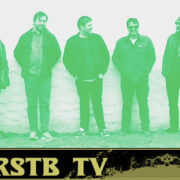2023 Favorites 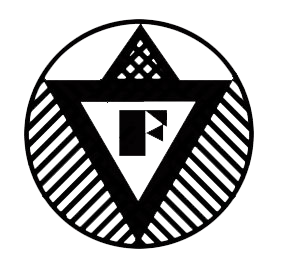
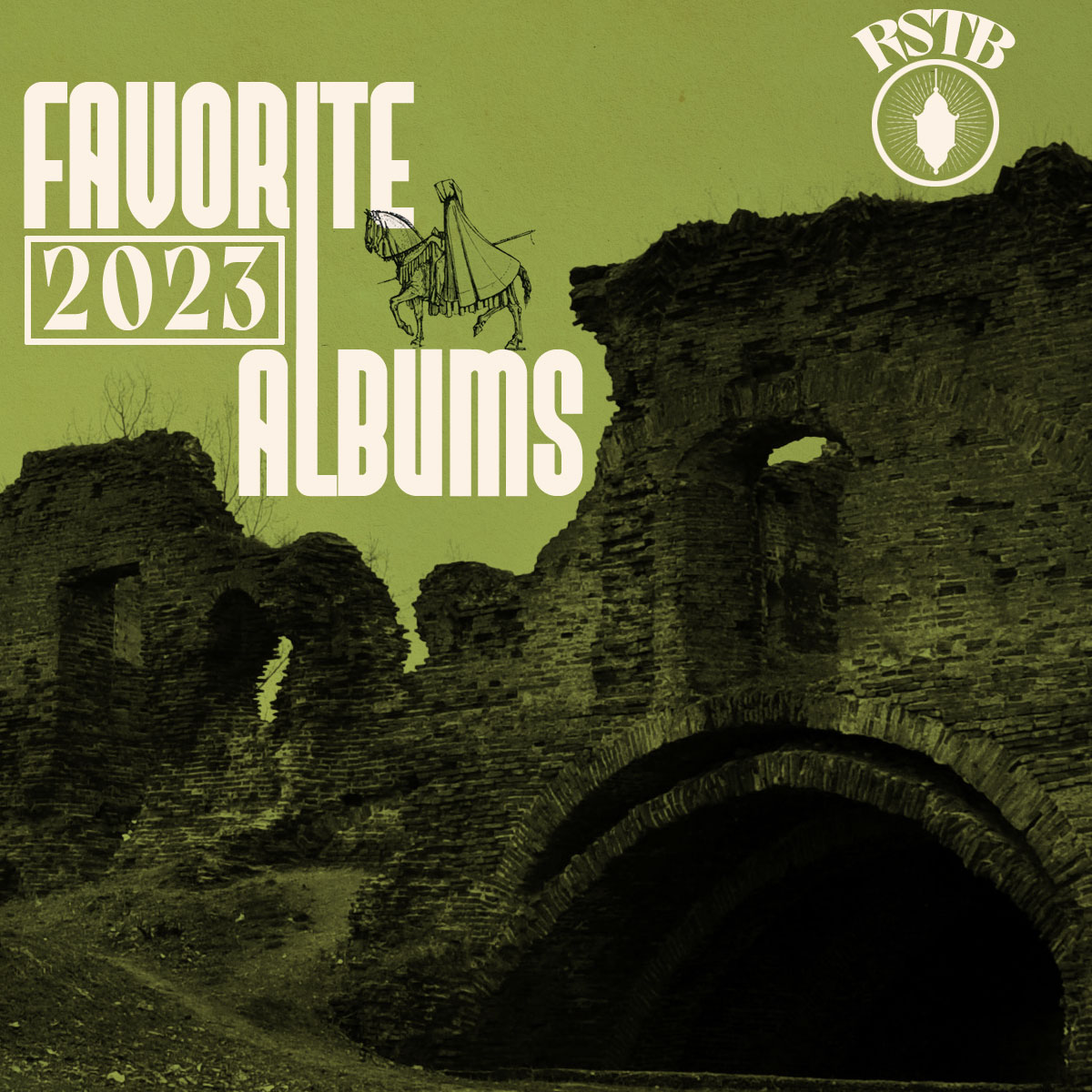
It’s always hard to tie up the year, especially this year. How anyone was able to shave down a list before mid-December is beyond me, and since there were quite a few picks on the list that were still rushing to the shelves in late November and early December it took a bit of time to fit all the pieces together. 2023 was light on bright spots in a lot of regards, but musically, it was a gift that kept on giving. Now’s a nice time of year to give some back and knock these titles out of your streaming queue and kick some cash towards the artists if you can. Plenty of familiar names on the list, but as usual, some surprises as well. I don’t believe in ‘Best’ so, as in the past, the list is unordered and simply a round up of my favorites from the year. These are the records that captivated me most in 2023, and I hope this ought to help keep those turntables busy through the holidays and beyond.

Anna St. Louis – In The Air
In The Air flutters out of the speakers soft and supple — a silk scarf caught in the wind. An exercise in quietude beaming an aura of comfort from speakers, In The Air is the sound, not of settling, but of realizing that someplace is finally home. Anna creates a campfire light flicker of hope hung heavy with mountain air. Her vision of home is hard to resist, and even easier to return to again and again.
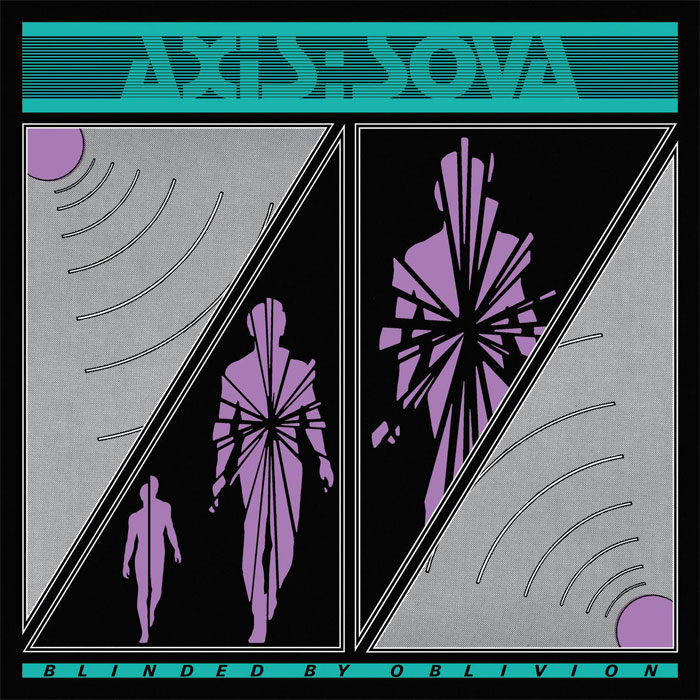
Axis: Sova – Blinded By Oblivoin
The fuzz that surrounded the band in the past is burned away with an acid splash of neon glow and chrome glare. Sova brought a vision of Devo, Wire, and Toni Visconti to Segall’s studio door, but the band have also burrowed deep into the android heart of Tubeway Army’s sound, scratching deep into their cauterized soul. Further into the caustic creep of the album, the band slides a few slices of Magazine, Soft Boys, Twinkeyz, and Simply Saucer into the synapses as well.

BCMC – Foreign Smokes
The edges of Foreign Smokes glow like a meteorite, freshly descended into soft earth. The record has a calm to it, but it’s swirled by mists and mystery. Portions of the record slink with a liquid greasiness, a petroleum slipperiness, while others pulse with the sanguine spirit of Reichel and Fricke. MacKay’s guitars, dipped in absinthe and intrigue, lace together with Crain’s synths, the provider of the aforementioned mists. The pair isn’t off base in describing the album as Noir — it’s hard to imagine this album existing during the day, much less being recorded under any sort of direct sunlight. It’s music made for the depths of night breaking into the pre-dawn of early morning. It’s a soundtrack to neon reflections and pulses just barely visible over the horizon.

Bill Orcutt – Jump On It
Immediacy has always played a part in Bill’s works, but less so intimacy. While the familiar spark of entropy remains in the works here, there’s also a sense of Orcutt drawing the listener close and letting down a barrier that’s long been lifted. The recordings are bare and open, littered with the sounds of fingers on frets and the cadence of breath. There’s nothing hidden away. What sounds swirled the room are caught in the curls of tape. The pulse of the platter still beats with an irregular itch, but the exterior radiates a newfound colloquy with calm.

Bobby Lee – Endless Skyways
Endless Skyways returns Lee to the thrum n’ thrall of the full band, shaking off the back porch boogie of 2021’s Origin Myths for an outing that springboards off of the deep denim juggernaut that was Shakedown in Slabtown. Joining a cadre of like minded souls bridging the Cosmic American causeway with a Teutonic tenacity, Lee’s visions of percolated prog country fit tight with Spencer Cullum’s “Dieterich Buxtehude” or Stephen Bailey’s “Bar Kraut.” Collect ‘em all and collate as you please to complete the essential motorik mountainside mix. The record feels like the most complete version of what Lee’s been whittling away at over the past few years. The band knit their sound together in sonorous symbiosis, sending vibrations rattling from the mountains to the mycelium.

Bong Wish – Hazy Road
There’s a fogged ripple of Anglican folk at the heart of Bong Wish’s sound, growing a full quiver of songs out of the energy that erupts post-dam break in “A Sailor’s Life.” Saleh, along with standout support on strings from Kassie Carlson, turns the record into a topographical exploration of folk and psych pop, rooted in records from Perhacs, Trees, and Susan Christie, yet leaving behind the whimsy for a more polychromatic punch. The record’s use of rhythm is one of it’s greatest charms, eschewing the often obvious impulses of psych-pop to veer towards the Germanic motor, and instead injecting in insistent pace that thrums through the senses with more of a nod towards Twin/Tone-era Pere Ubu than Guru Guru.

The Bures Band – Birds Nest
The band finds themselves flirting with CSN, Byrds, and the air of the Allmans. The new quintet has captured the dynamic of the deep bench ensemble to perfection, a wellspring of talent makes creating classics seem easy. The banner names from the ‘70s country corner only cover a portion of what’s happening on Birds Nest, though. Slide the record into the bins and bang it up and it would be easy to convince a cosmic country cutout collector that this was a lost artifact, languishing in wait alongside copies of Cowboy, Taos, Sand, Country Funk, and Fat. Dive deeper and the band’s also picking through the pillars of psych-folk, with nods to Relatively Clean Rivers on “Drifting” and Euphoria on “Early Riser.” Plenty have harnessed the dusted dungaree drawl of the ‘70s these days, but what really seems to solidify the sell on Bures Band are the layered harmonies. There are few that are pulling off the three and four part harmonies pinned to the easy careen that the band makes seem so effortless.

Cindy – Why Not Now
The collective spirit on Why Not Now pulls Cindy from the shadows. There’s still a feeling of stillness and solitude that could never really be shaken from Gill’s works, but with somber viola, layers of guitar, and backing vocals, the seclusion feels more like refuge than withdrawal. Gill’s songs are more than just muffled musings as might have been inferred from early works. Beneath the calm and composed exterior pop touches cross in intricate stitching.
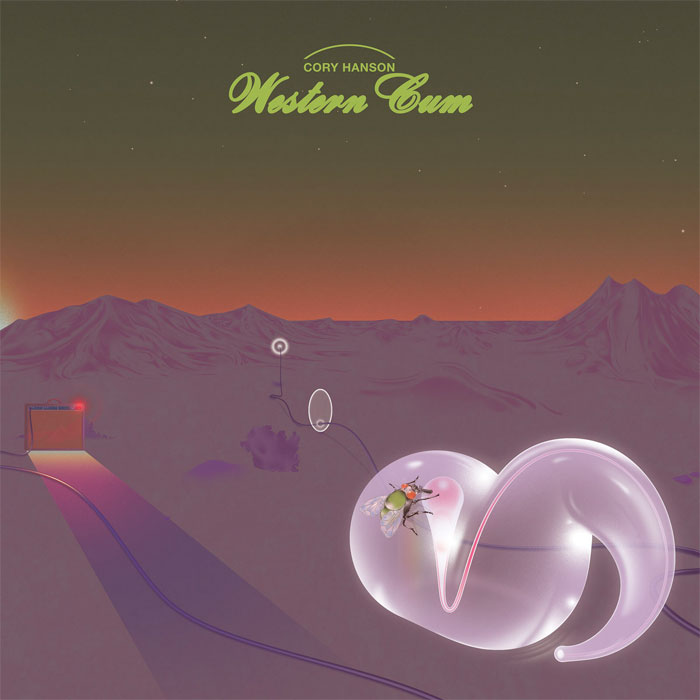
Cory Hanson – Western Cum
On Western Cum the lonesome lilt has been met with a heady surge of guitars, more Crazy Horse this time than Skip Spence. Scuttle those expectations for soft country croons as this one is a gnarled sucker punch to the solar plexus — an hooked on the edges of Americana, but embracing the prog prickles of his work in Wand, finding an exploratory valley between.
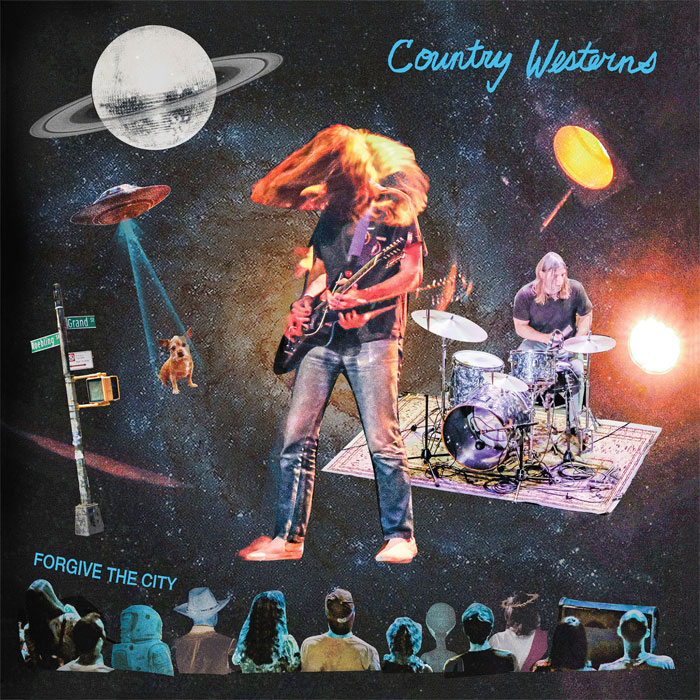
Country Westerns – Forgive The City
There’s something intangible about Country Westerns vision of rock. It’s raw, frayed, like an abrasion that refuses to heal. Cover it up, cast it aside for a moment, but there’s always a bit of burn to remind you of its presence. The band’s sound is lodged between southern rock and a long shuttered ideal of indie, leftover from the Dutch East India days. On Forgive The City, Country Westerns offer up the kind of classic that would have rattled out of cassette decks in every college town and soundtracked the jukebox on a hundred last call clean-ups. It feels like an album that’s already lived ten lives and it’s not bound to leave the turntable around here for the whole year.
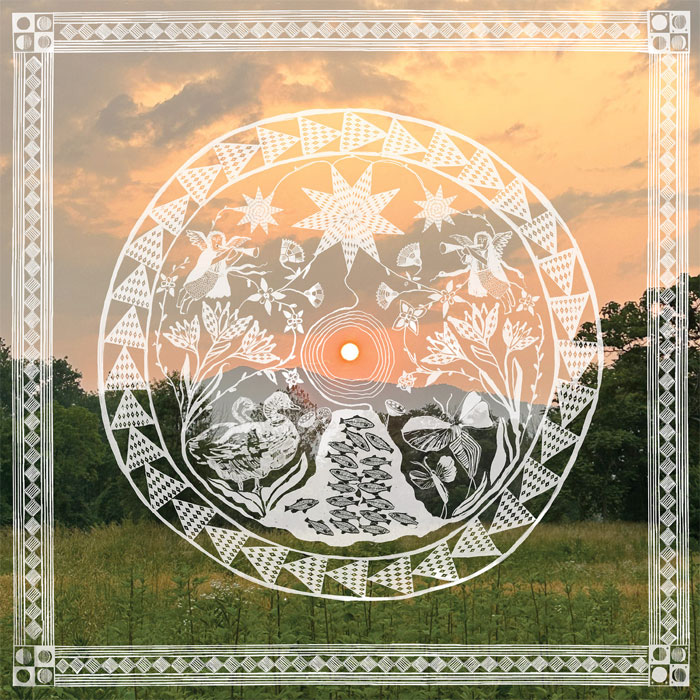
Daniel Bachman – When The Roses Come Again
Sitting at the cross-section of Laraaji, Eno, The Carter Family, and Hobart Smith, the album borrows systems of repetition and resolve from the ambient contingent and applies the mindset to folk. The songs on Roses become clockwork curios of traditional music, running like film loops of family gatherings around and around the lens until the gears begin to add their own cadence and clatter to the memories. The electronics are subsumed into the album’s core, growing if not in symbiosis, then in acceptance of the intrusion. Like a tree that’s grown around the decomposing chassis of a discarded truck, the natural impulses adapt to the trespass of technology. The album’s hypnotism rides the wheels of its circular motion, pulling the listener into a vortex of rust and rhythm, history and horticulture that chases the sun with a perpetual pulse.

Danny Arakaki – Tumble In Shade
The record has a feeling of a weeklong studio exchange of ideas, an egalitarian vision of ‘70s excess that’s more grounded for its aversion to myopic minds. This is a clear-headed No Other as written by the ensemble, not dictated from the songwriter’s pulpit. The hole left by Malach and Spaldo is filled by Mike Bones (Endless Boogie, Weak Signal) and his leads add a growl that’s often come forward in his own work. The guitar hackles are tempered by a liberal dose of pedal steel by Dan Iead (Broken West, Jess Williamson) and keys from Winston Cook-Wilson. The pair provide an airbag of ambiance for the others to fall into at any moment, shading in the edges with amber hues and lavender swirls.
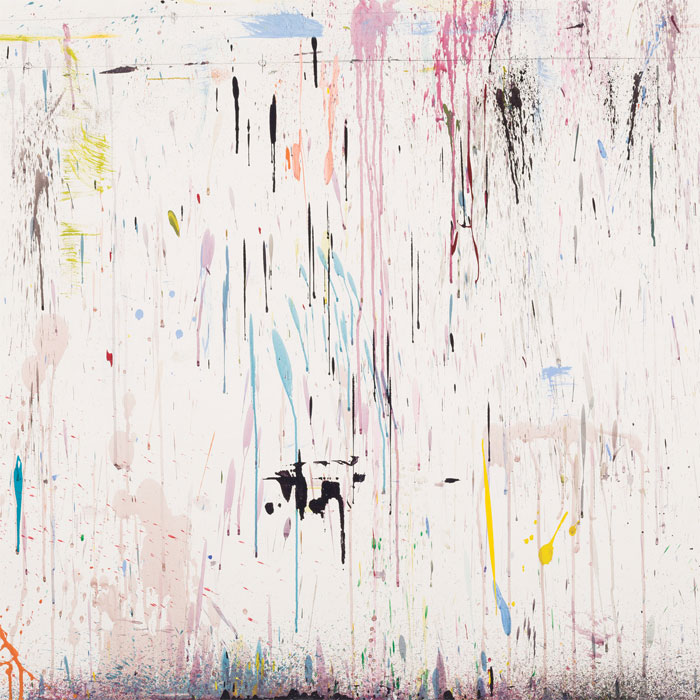
Dave Easley – Ballads
The album is split between stunning moments from Easley and Jeff Parker, both of whom wield their virtuosity not with flash, but rather with restraint, tone, and temperament. Easley matches Parker’s already renowned suppleness on a string of reinterpretations that feel like they may have always meant to have a steel in the mix. The last album found Easley working through versions of Carla Bley, Coltrane, Ned Washington, Monk, and a particularly inspired collision of “In A Silent Way” and “In My Room.” This time around, as the title hints, ballads are on the block and Easley slips into their saunter with an unbuttoned grace. This time its Coleman, Ellington, Sharrock, Carmichael, Billy Strayhorn, Brooks Bowman, and Paddy McAloon that find themselves among the clay on the wheel, with the ensemble reshaping the works into wonders that smoothie the hackles of the soul. Sharrock’s “Who Does She Hope To Be” in particular gets a velvet air, mounting the herculean task of swapping Pharoah’s sax with Easley’s strings, giving the Ask The Ages classic an even more somber countenance.
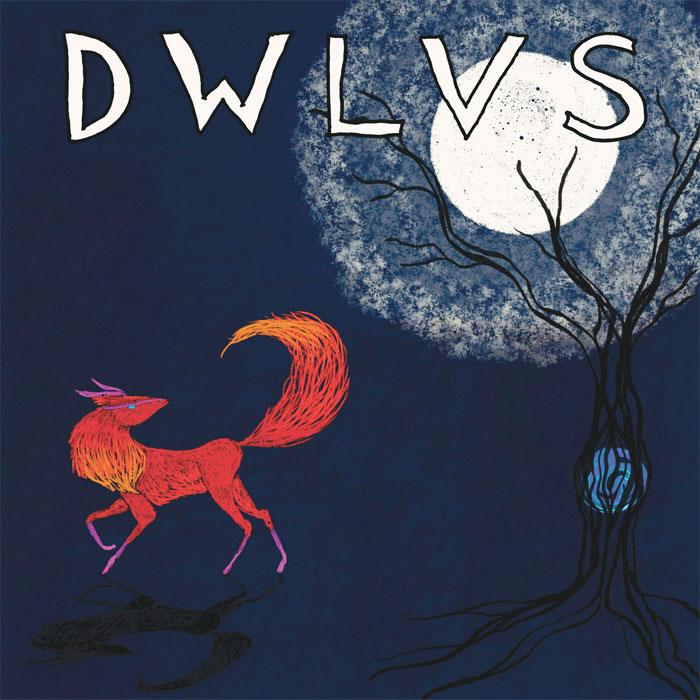
Dire Wolves (Just Exactly Perfect Sisters Band) – Easy Portals
The band burrows into the warrens left vacant by Trad, Gras, Düül, & Vuh, once again picking up the pastoral prog mantle as modern heirs apparent. The songs are adorned with the band’s now signature vocal incantations, but this time they swap Georgia Carbone, who’s been at the mic for the last few outings, with Marina Lazzara (of The Rabbles), layering in a thick dose of dread and desire. It’s apt that the record was both recorded and released in October, as the month seems a fitting backdrop for the band. DWLVS vision of pastoral prog isn’t verdant, but rather desolate, scarred, with wind whipping across fields picked clean. Strange magics mix with cinder and smoke on Easy Portals. The band leaves a few crop circles in the mind, scrawled with the signature of the Just Exactly Perfect Sisters Band.

Doug Paisley – Say What You Like
Like his last record, Doug Paisley’s Say What You Like is threaded with a weathered quality — cracked and oiled like leather, rutted deep like bar wood, worn through like flannel that’s been patched and re-patched. Where the last record was steeped in a smoke-halo of heartbreak and a sunken-hearted urge to be made whole, there’s more of a free spirit to this one. Paisley’s songs move you through the day with a wry smile, but they leave the listener weathered as well. There’s no getting out of Say What You Like without a mark.

Edena Gardens – Dens
Their albums are patient but pungent, finding the fissures in the foundation of psychedelia and seeping inside. As with their past albums, Papir’s Nicklas Sørensen takes the wheel with his snaking guitar lines. Recalling the tones of Ripley Johnson in his Moon Duo days or Talk Talk stripped back to the instrumentals, Sørensen steers the listener into cavernous grottoes of psych, oil slicked and infinitely comfortable in its miasma of moisture. The album starts quiet and coiled, working through the delicacy of “Wald,” and the band’s nod to The Durutti Column on “Vini’s Lament,” but it opens into an ember-light glow on “Morgensol.”

Elkhorn – On The Whole Universe In All Directions
On The Whole Universe In All Directions finds the band’s Drew Gardner returning to his jazz roots, weaving a tapestry of vibraphone among the acoustic nests built up by Jesse Sheppard. The pieces grew out of a set they’d done for the Psychedelic Sangha series of guided meditations. While in the studio among Drew’s assembled instruments the idea struck for some vibraphone and 12-string duets and the pieces began to flow forth from the pair. Letting the scorch of Drew’s electrics fade away from view, the pair invite a new tangle that ripples like liquid and shimmers like glass.

Emergency Group – Inspection of Cruelty
Straddling the lines of krautrock and free jazz, Brooklyn outfit Emergency Group culls members from Plates of Cake, Tone Poets, and The Jazz Marauders.The band pushes their sound past the ‘70s psychedelic nodes of the free set and into something more rhythmically rooted in the German Progressive tradition. Locking into Brade’s drumming and Mandl’s bass as anchor point, the band creates a springboard to truly let the guitar and keys work of Jonathan Byerly and Robert Boston explore the outer points of the map.

En Attendant Ana – Principia
On their latest album, Principia, Parisian band En Attendant Ana swing towards a classic pop sound, culling rhythm and aesthetics from heroes Broadcast, Electralane, and Stereolab, while still keeping things tied to their breezier indie pop past. Principia is an album that’s constantly worth going back to, a pop puzzle full of corridors, nooks, and niches for the listener to explore.

Eric Silverman – Stay In It
Stay In It embraces a West Coast eclecticism, tying together knots of psych, Americana, prog, and country. It’s the kind of album that’s fueled by late nights, long drags, lean years, and an unyielding vision, staring down perfect sounds and carving out quicksilver classics through the haze. Yet, the album marks a cut with that past, a jettisoning of the city, a move to the desert, an embrace of family, and a need to get the whirlwind of the previous years to tape.
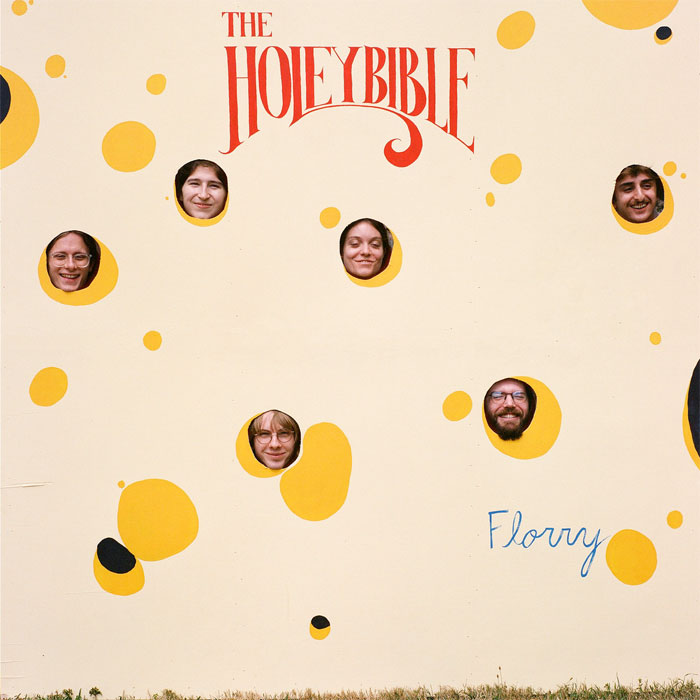
Florry – The Holey Bible
Blossoming out of their spare, but stinging debut from 2021, Big Fall, Philly’s Florry nails the right mix of vulnerable and raucous on their latest album, The Holey Bible. While the band’s easy rapport and studio skills make the record smoke at the edges, above the fray Medosch’s skill as a songwriter and storyteller makes the songs stick to the ribs. Tales of late night debauchery, fragile love, the artist life, risks, rewards, and ruination all rear their head on The Holey Bible and Francie imbues them with her slouched comfort and crooked smile.

Frank and the Hurricanes – River of Love
The Hurricanes are back, and just in time to save summer nights and sunbaked afternoons. The band continues to refine their sound, turning in the tightest ten tunes I’ve heard out of Frank yet. Balancing the country-fried countenance, dug out of backyard barbecue bluster of Frank’s early work with a more tender temperance that reared its head on Love Ya Love Ya, the new record feels like it might just be The Hurricanes’ best yet. There’s still a crop of drop-topped, sunshine swillers that embrace the shrympin’ n’ drinkin’ that’s always at the core of Frank’s work, but as River of Love slides into its second side, that’s when the album really comes into its own. There he peels back to reveal more of the inner tenderness that’s also been one of Frank’s most endearing attributes.
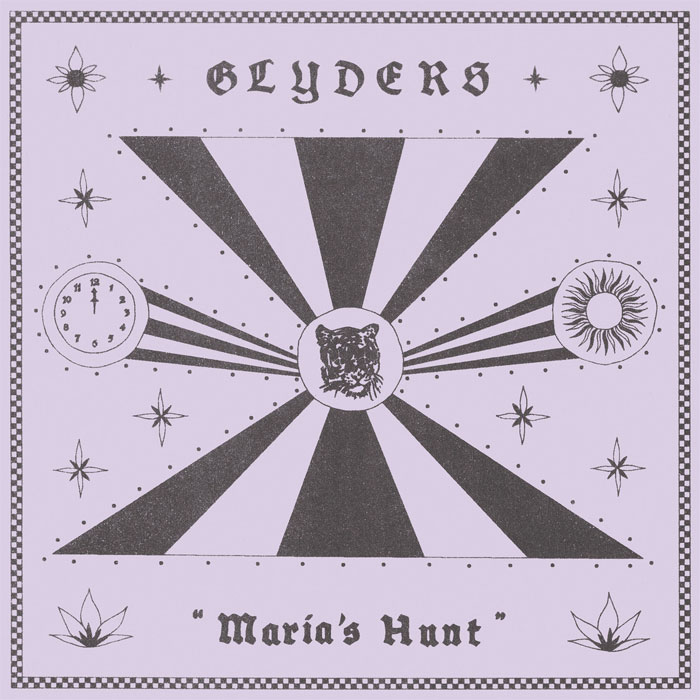
Glyders – Maria’s Hunt
As they crest into the creases on Maria’s Hunt, the band finds a nebulous balance between stripped n’ strangled garage beaters, a bongwater bath of stoner grooves, and a hazed saunter of cosmic country. The record plays like the jukebox at the best backwater bar, deftly swapping between a narcotic haze that flickers in time to the broken bathroom lights and the stench of sweat off the dancefloor.

Goat – Medicine
As Goat heads into a new album there’s an undercurrent of psych-folk making its way to prominence. That’s not to say that Medicine has softened the band’s sound all that much, but with a creeping pastoral quality that’s hovering between Wicker Man auras and an admitted influence from home-country heroes Arbete & Fritid, Charlie & Esdor and Träd, Gräs & Stenar, the album catches a colder wind than their last few. The band’s balance of bucolic moments and corrosive riffs drives the album, creating a tension between entropy and ecstasy. It’s a bit of an homage to Sweden’s psychedelic past, and the band carries on that canon as scholars and stewards of a new era.

Hollow Hand – Your Own Adventure
Your Own Adventure spins the dial between psych, country, folk, and indie, never shying away from robust production. Like a one-man Elephant 6, Kinghorn-Mills laces his psych-pop with backwards guitars, flutes, and synths. Hollow Hand’s works don’t linger in whimsy, but there’s always a sense of sparkle clinging to the edges of Max’s pop odes. As the album plunges deeper, hypnotic outros consume the listener, nodding a bit to the layered pop of Super Furry Animals. The country touches creep in subtly, but balance the record with a road-worn rumple.

Hooveriii – Pointe
Touches of ‘60s psych, kosmiche expanses, prog, folk, and even a touch of country all snake into the sound on Pointe. While, on paper, it seems like the band are drifting focus, on tape the record winds up one of their most cohesive yet. The widened scope allows the band to play with texture, stitching the album together into a cosmic tapestry that pulls their psych-pop strengths to the forefront, while letting a bit of a softer side line the interior. Hoover and his assembled heads have finally found themselves by turning down the temperature and hanging in the haze.
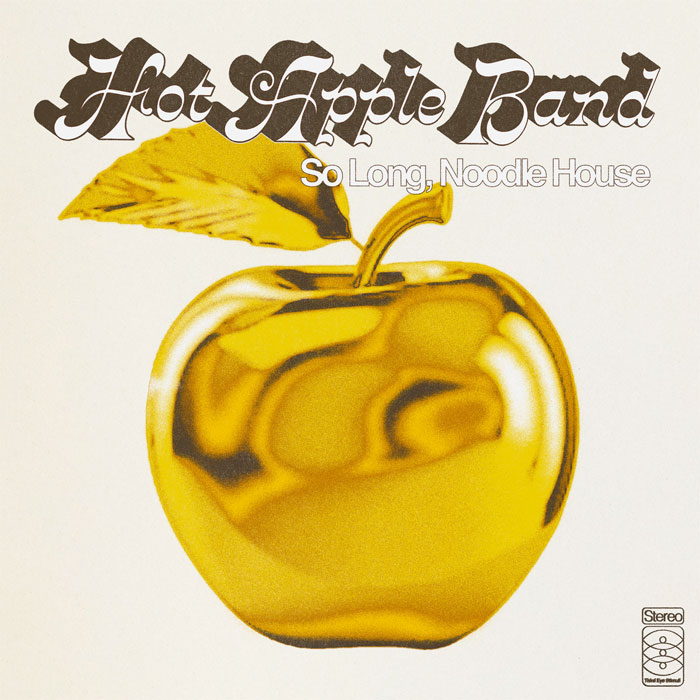
Hot Apple Band – So Long Noodle House
Along with The Bures Band, this duo serves up one of the best Aussie platters of the year, and like their contemporaries they share an affinity for the more sun-splashed vistas of the ‘70s. The two bands share a knack for West Coast comfort, though Hot Apple Band also have an Apple Records in ‘em, streak waxed to a walnut sheen and pumping out pop that skirts the Harrison/Badfinger valley with amiable ease. Throw in a few nods tipping towards the works of Nilsson, Jeff Lynne and Roy Wood and those of you with Drugdealer and Lemon Twigs LPs on the shelf ought to perk up and pay attention.

James and the Giants – James and the Giants
Slipping on a new name once again, James Jackson Toth (Wooden Wand, One Eleven Heavy) carves out an album out of new songs and reinterpretations of older works. Along with a few friends and Jarvis Taveniere (Woods) in the producer’s chair, the album finds itself settled between Wooden Wand’s later works and the JJT solo record. Shaped by Taveniere with swells of strings and layers of background vocals, it’s the most cinematic and tender that Toth has sounded to date climbing up the ladder of Toth catalog essentials.
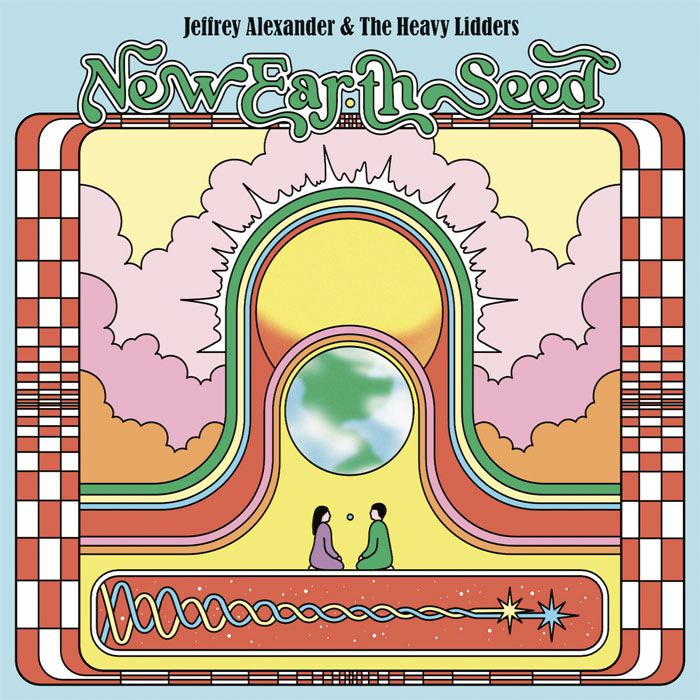
Jeffrey Alexander and the Heavy Lidders – New Earth Seed
This time around the band smelts their sound to the psychedelic core, keeping quite a bit of the scorch from Elixor Of Life, while pushing the band further into the arms of space rock, flirting with the euphoric ends of the shoegaze family tree, and garnering a few jazz-psych scars. The record, produced by Chris Forsyth, finds the band’s foundation expand with a litany of studio-side guests — Animal Collective’s Geologist on Hurdy Gurdy, vocals from Kate Wright (Movietone), percussion from Ryan Jewell, sax from Jeff Tobias (Sunwatchers), and keys from Brent Cordero (Psychic Ills). Alexander lights into the record with nods back to the Crazy Horse crux that’s underscored a lot of his past work with the band, but things quickly begin to aim for more cosmic climates. It’s an ambitious outing from the band, and Alexander succeeds in capturing the post-psych grandeur that he’s aiming for while also creating one of his headiest offerings yet.
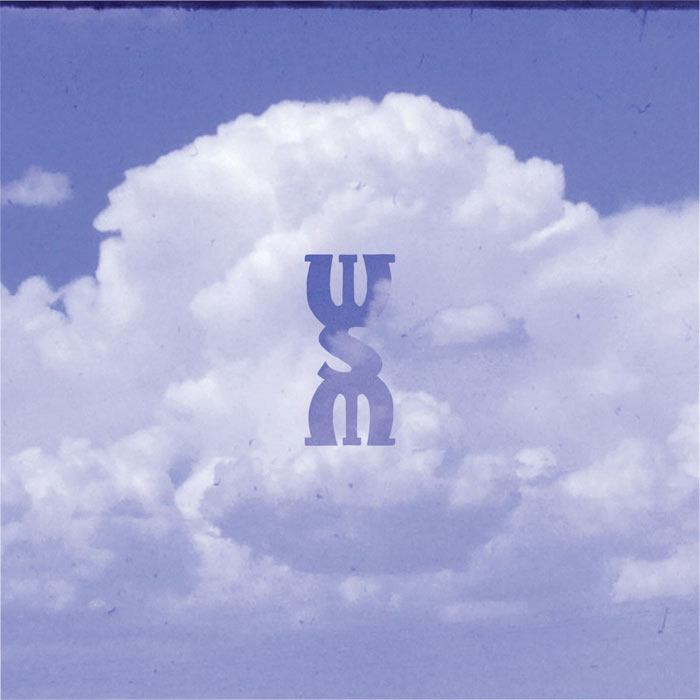
Jeffrey Silverstein – Western Sky Music
Silverstein continues to sling twang with the painterly grace of brush against canvas and the new set of songs open up purple-skied vistas that were only hinted at on his early works. Guest spots from William Tyler and Karina Walker compliment Western Sky Music‘s ranchhand ramble in rotoscope, sending the listener into slow-motion spells of color and light.

Jess Williamson – Time Ain’t Accidental
Last year’s stint with Plains elevated Williamson to more of a household name, and with good cause. Her duo with Katie Crutchfield captured a the dusk light between country and indie, creasing their compositions with the claustrophobia of small town life and Western desperation. Those themes bleed over to her new album, with some of the standouts here feeling like they could have easily found their way alongside Jess’ works in Plains. Her last album was a quiet, smoke-hued gem, and this one dashes out into the light.

Jonathan Rado – For Who The Bell Tolls For
On For Who The Bell Tolls For, Rado swings back into the comfort of his pop toolbox, but this time he lets the experimentation underscore the album’s edges, rather than let the dial flip through whims and workshop ideas. The balance succeeds and this winds up his most ambitious album in some time. He leans into hooks with an unbuttoned grace — a three-drink sway that’s studied but natural. On the coiffed and composed “Don’t Wait Too Long,” Rado offers up one of his catchiest and most refined hooks, tossing the listener into a velvet curtain of keys, coos, and drum crashes. Whether the Fox has been on your speakers or you’re a fan of Rado’s hand on the hues of other gas-crisis glam hits he’s been a part of, this is some of his best work, and the start of a new solo chapter.

Josephine Network – No One’s Rose
The record opens with the most affecting moment, the acoustic ache of “All There Is To Say,” and the tonal shift sets up the listener for the departure from Josephine’s past. As the record opens up a bit of the ol’ Bolan bounce sneaks in at the edges, but there’s nowhere near the kind of crunch that found its way into her past works. It’s a bold shift, but the gamble pays off nicely with some of Josephine’s best songs yet.
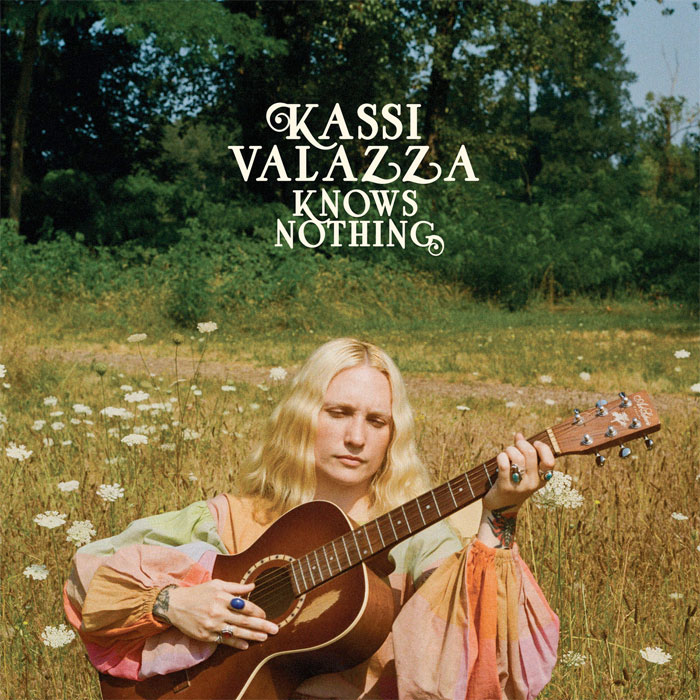
Kassi Valazza – Kassi Valazza Knows Nothing
Finding her footing on her new album, Northwest songwriter Kassi Valazza pairs with friends from TK & The Holy Know Nothings to plumb country, Canyon Folk, and British Folk alike. With an ear towards a trip into the ‘70s, Valazza’s songs are equally at home in the jukebox jumble next to Linda Ronstadt, Judee Sill, Fairport, and Trees. Blending her roots in the Southwest with a more expansive indie ripple, picked up from her adopted Portland home, Valazza’s album proves more nimble than the average country crooner.
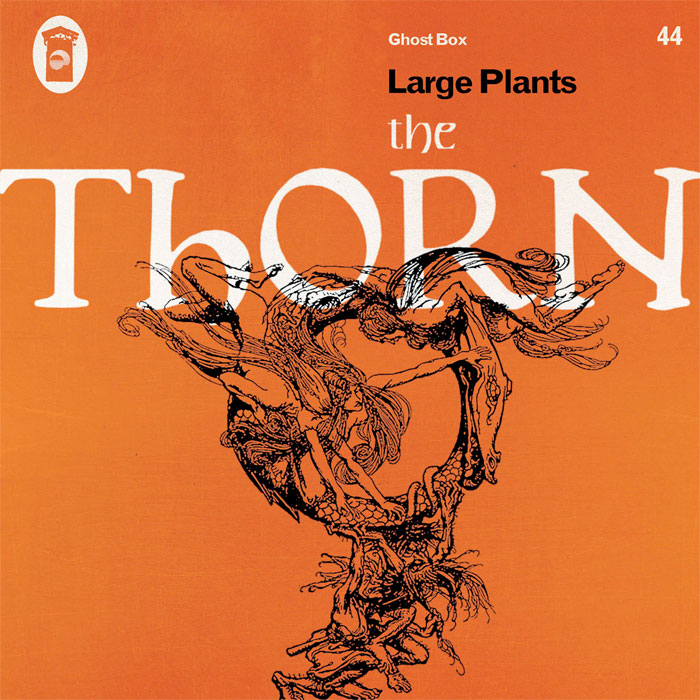
Large Plants – The Thorn
The Thorn couldn’t have come at a better time, rising from the bogs in the bottom-half of November, embracing the barren chill as it begins to seep in to your bones. If Large Plants’ first album was a tale of a modern marauder with his steel horse rumbling a lysergic pulse through the bloodstream, The Thorn is its Arthurian reflection in the oil slicked puddles below. The prog thread rises quickly and holds tight to this one. Sharp’s leads curl like wood smoke through the thatch, burning with an acridness that permeates the senses. Sharp has spent years carving out the kind of mossen psych niche, but here there are a few touch points that seem notable. The album balances ferocity and fantasy in the way that obscurities like Day of Phoenix or Twink’s heady solo stint Think Pink once perfected.
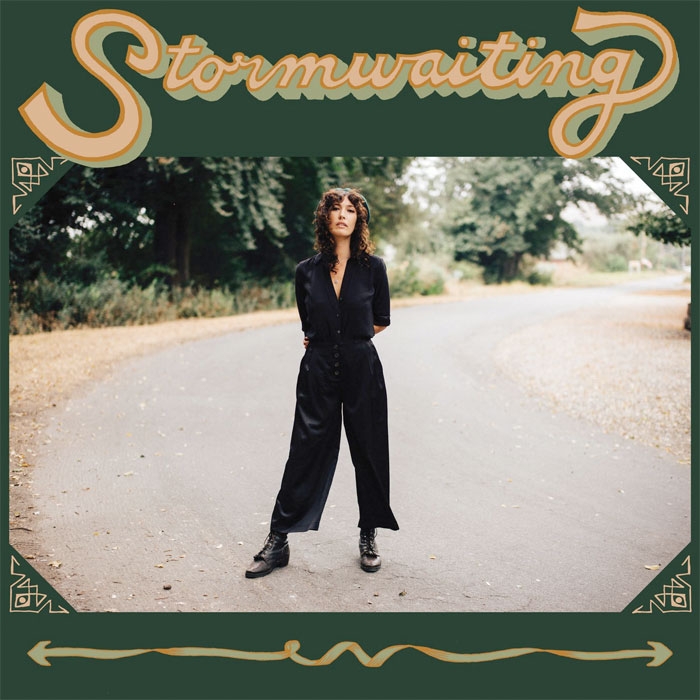
Lauren Barth – Stormwaiting
A good touchstone for the album is Bert Jansch’s L.A. Turnaround. Like that album, it’s stuck between the poles of L.A. and London, shrouded in flutes and fingerpicked passages, but sweating out the smog and soot of West Coast twang in tandem with those cold English winds. The influence of Pentangle and Fairport can be felt, but they remain an undercurrent that’s submerged in the dust of the West. The album keeps an eye on Crosby’s If Only I Could Remember My Name, Joni’s Court and Spark, and Buckley’s Greetings From L.A. Like those records its a distinctly West Coast album, salt air mingling with the smoke.
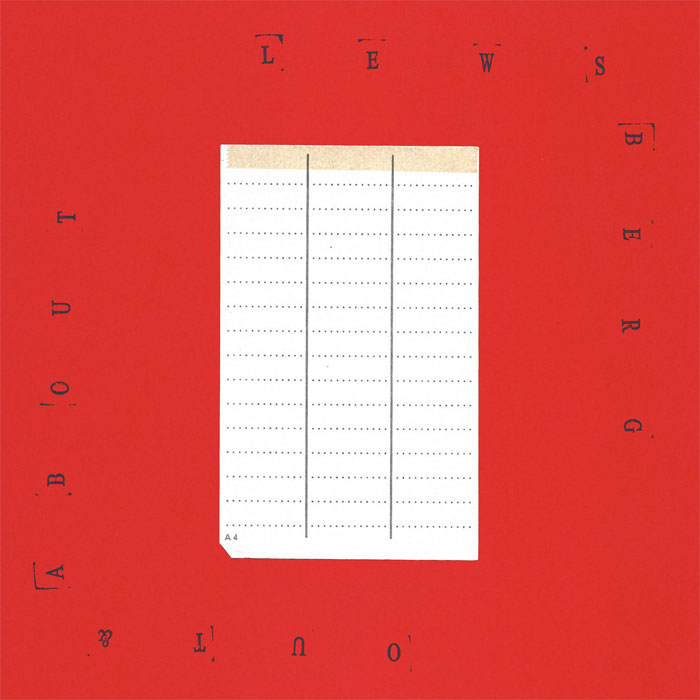
Lewsberg – Out and About
The songs here aren’t as cradled as those on In Your Hands, a record that strips away much of the rhythmic pulse that boils under the band’s sound, but they melt the edges of their angst just a bit. A greater focus on vocals from bassist Shalita Dietrich and the newly added Meinema serves to soften the often acerbic patter of Arie van Vliet. This time around the VU strums still rise through the ramble, but the band leans closer to downstream tributaries like The Feelies, Marine Girls, and Young Marble Giants. The latter shines through quite a bit in the album, and its great to see the band solidify in the studio, feeling as self-assured as they ever have.
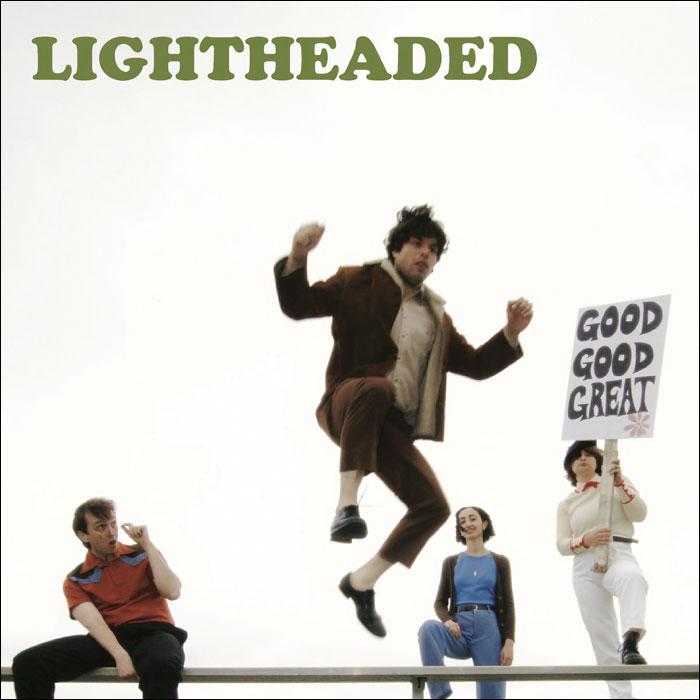
Lightheaded – Good Good Great!
Always digging through the quality over at Slumberland, and this new EP from NJ outfit Lightheaded brings a familiar flirtation with the label’s signature jangles, while reaching a bit further back into pop’s most crushed velvet corners. With an ear towards bejeweled 60’s production work – sweeping strings, tight drums, light strums and a melancholy drape — the band taps into a vernal humidity that tips quickly into early summer scenes. Clearly I’m always gonna be a sucker for a band that openly issues an influence out of Curt Boettcher, and there’s definitely his stamp of ornate, yet bittersweet bliss on the five carefully constructed curios here. What’s impressive is the band’s ability to hang their pop so neatly between Wendy & Bonnie, Shaun Harris, Another Sunny Day, and the overcast works of Victoria Bergsman. An absolute gem of an EP that only seems to sparkle more on each listen through.

London Odense Ensemble – Jaiyede Sessions Vol 2
Where the first volume finds the ensemble working in longform pieces that focus on the dynamics of the combo, dodging Osborn’s flute lines and injecting a sense of Hancock-indebted funk to the mix, the second stretches the ideas of psychedelic jazz. There are still plenty of moments that draw blood like the first record, but Vol 2 is a more exploratory record, unfolding in often surprising directions that trickle into the far corners of the listener’s brain.

Lord & Sharp – Kiwi
Featuring the bulk of Joys Union Group, the record comes from improv sessions between Mike Sharp (Sungod, Remember Ecstatic Duo) and Neil Lord (Future Museums). The pair dig deep into the tapestry of cosmic folk, letting layers of Popul Vuh, Pelt and Gastr Del Sol wash over their works, and finding themselves in good company with contemporaries like Elkhorn. Passing the 12 and 6 strings back and forth between them, the record opens into resplendent vistas of sound, sunrise seascapes that echo, weave, and wash over one another.

Magic Tuber Stringband – Tarantism
Like fellow Southern folklore figure Daniel Bachman, the pair have reflected the turbulence, violence, and uneasiness of life in 2023 through a contrast of American traditional song with a thread of corrosive discomfort. The record finds the duo expanding their palette quite nicely and cementing themselves among a growing number of artists reaching into the American past, dragging mirrored shards into the light and reflecting a schism of promised ideal and broken promises.
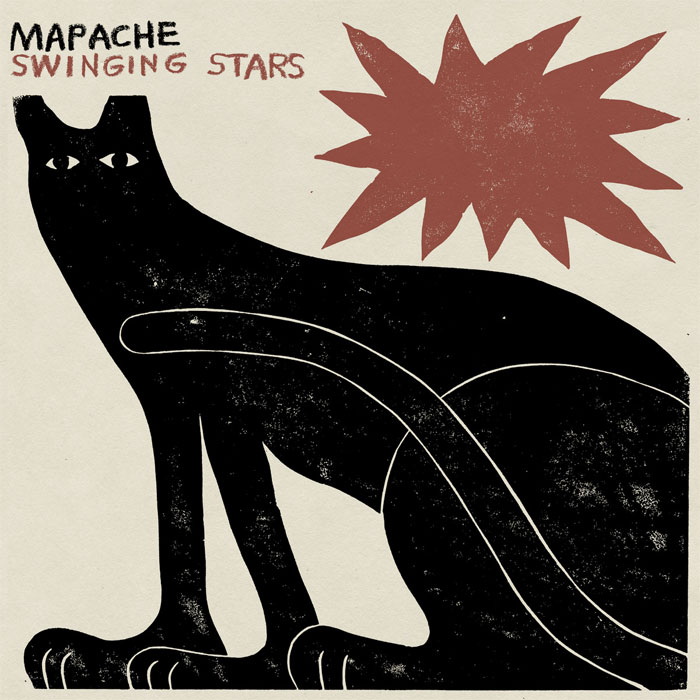
Mapache – Swinging Stars
After last year’s double disc outing, Roscoe’s Dream, Mapache retreated to Panoramic House to bask in the beauty of the Northern California coastline. The environs found the band pushing beyond the bounds of their past catalog, fleshing out their sound with a reinvigorated spirit that pays heed to the acoustic duo origins but makes room for a more nuanced production. Touches of Canyon Country, and old debts to The Rowans, Jim Sullivan, and The Everlys still find their way into the record. This is as full as the band has ever sounded, though, working out quite a few of these with their live band on the road before letting it get massaged into place with producer Dan Horne at Panoramic. The last album sprawled a bit more than most in their repertoire, but on Swinging Stars, the band is as lean and limber as ever. The salt air stings the senses and the afternoon sun bakes the melancholy to a golden glow.

Matthew ‘Doc’ Dunn – Fantastic Light
Following some welcome recognition as part of the last Sub Pop Singles Club outing, Dunn’s latest album, Fantastic Light, is his most refined yet. Expanding his scope, Dunn springboards off of his past collaborations with Jeff McMurrich and Tony Price, this time working closely with Asher Gould-Murtagh in the production chair (alongside himself) and bringing in a cadre of players that add rich strings and soulful background vocals to the album. Continuing his 2023 run of ‘best guitar solos outside of a Dino album’ J Mascis even pops in to tear a cosmic hole in the peak of “The Ranger.” The album gathers a scent of excess that’s balanced with exemplary skill. Feeling in the vein of initially misunderstood masterpieces like No Other, Veedon Fleece, Greetings From L.A, and Wolfking of L.A., the album is marked by ornate instrumentation, but all the better for its grandeur.
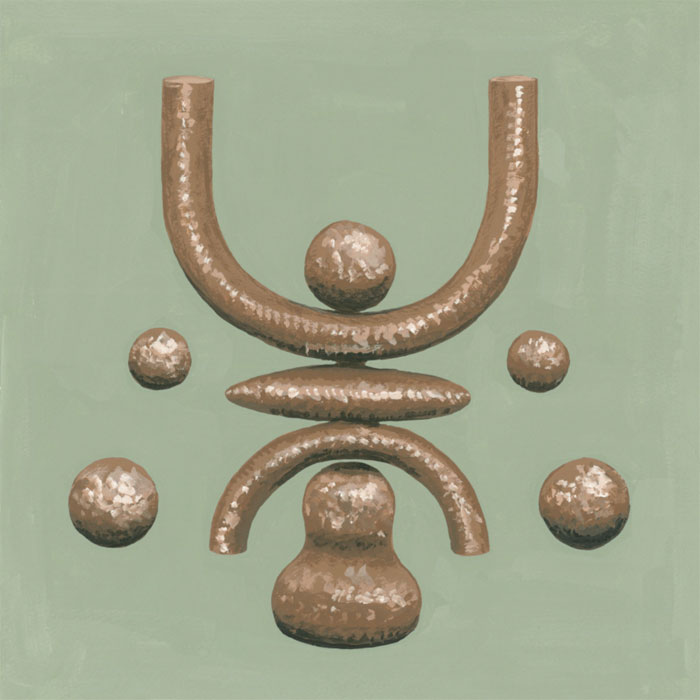
Maya Ongaku – Approach to Anima
The record at times touches on the ‘90s psych-folk movement that took root in Japan — shades of Ghost’s Lama Rabi Rabi or Floating Flower, though it also reflects the more languid works that preceded them like Fluid or Takuro Yoshida. The record is rooted in a groove that’s subtle but steady. Ryota Takano’s bass lulls the listener into a sense of sway as hand drums and soft strums play off the patter of the rain. Fleeced saxes make their way into the mix, cradling the songs, but never overtaking them. The album warms, like tea trickling down the esophagus or the rose bloom of whiskey in winter. It radiates through the body in slow waves, a resplendent record that lets the listener slip between sides of the veil.
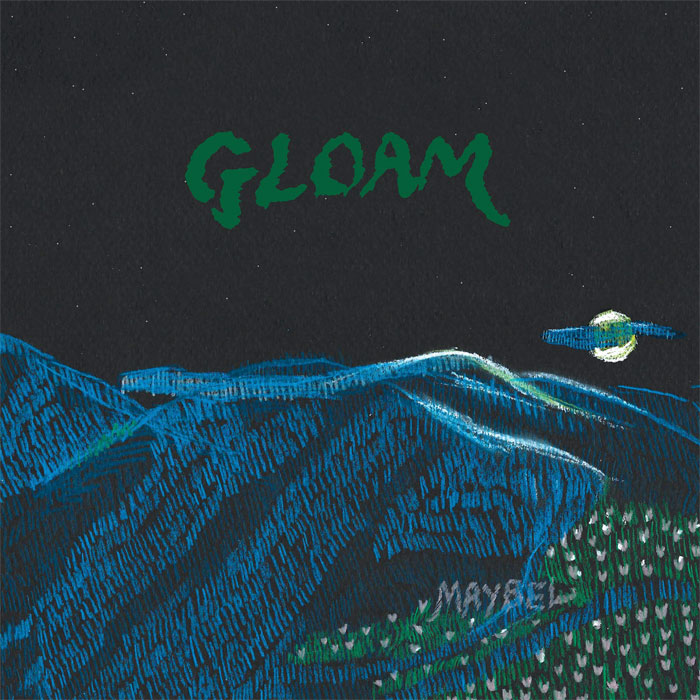
Maybel – Gloam
This is an album of cable knit harmonies and woolen-wrapped production. The band lights into the indie folk canon with a country heart, aptly citing Emmylou Harris and Daniel Lanois as inspirations for the record. Their debut was sparse, and they continue to corral calm ambience as if it were a studio setting, but this time around there’s a bit of a thickening to their sound. Recorded again with Jonas Bonnetta at Port William Sound, the record lays atop a soft bedding of hiss, letting the vocal harmonies float like breath on November air. A new reliance on soft synths, occasional chugging rhythms, and a faint clockwork whir makes the Lanois connection clear without ever losing what made their debut such an instant favorite.

Meg Baird – Furling
Furling opens up Meg’s palette, still tethered to the ‘60s Anglican fog of folk that wound around Espers, but thickening up her sound beyond a solo songwriter fingerpicking unadorned. Along with her partner and Heron Oblivion bandmate Charley Saufley, Baird builds the record into a hazy, diaphanous affair, hung with the hallmarks of ‘90s dreampop, ‘60s folk, modern torchlight ballads, and melancholic synthpop pulses. The record wipes away conceptions about Baird’s works, leaving plenty to love for those who’ve long been under the songwriter’s spell, while opening several inviting doors to unfamiliar newcomers.

Melenas – Ahora
The third album from Spanish quartet Melenas finds the band radiating light, turning their taut and tensile post-punk into something a bit more incandescent on Ahora. For the new record the band makes a subtle shift away from their past anchors in brittle rhythms and punk signifiers, leaning into the dreampop gauze that occasionally shrouded moments on Dias Raros. Here, the band sands their edges smooth, letting synths and an electric pulse of percussion take the forefront, though they’re careful not to truly spill over into synthpop. There’s a softening here, but it eschews slickness. The record finds the band picking through more motorik meadows, leaning heavily on Electrelane’s The Power Out for inspiration, then tracing the through lines to Broadcast, Stereolab, and Neu along the way.
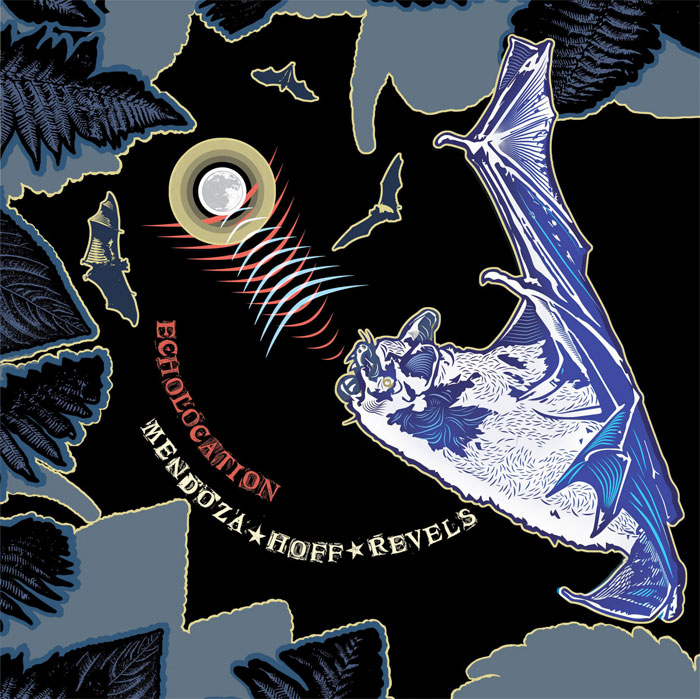
Mendoza Hoff Revels – Echolocation
Echolocation emerges as one of the year’s most affecting jazz-rock releases. Lewis’ sax lights up the record, laying into the listener with an ultraviolet intensity that sears its intonation into a few layers of skin and synapse. He often spars with Mendoza’s equally turbulent guitars. Her playing is sinewy, but sharp, snapping through the bone and carving out a tattoo of its tumult on the listener with each new song. The band lets dissonance chew at their sound, but they’re not immune to moments of groove — muscular, menacing, rusted grooves that move the listener but take a pint of blood and a pound of flesh on their way out of the speakers.
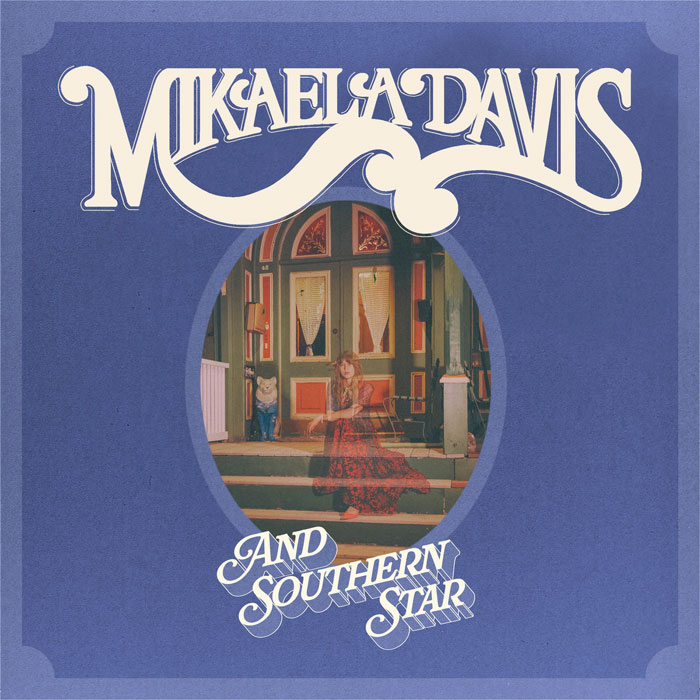
Mikaela Davis – And Southern Star
With the addition of backing band Southern Star, harpist and songwriter Mikaela Davis embraces deeper rivulets of ‘70s pop and folk. Her second album pushes away from the indie inclinations of her debut, Delivery, and in the process embraces a more timeless sound that’s picking through cosmic country swells, Canyon folk, and an AOR grandiosity that feels as expansive as the band itself has become. Under Davis’ gaze the songs find a way to choogle and charm, giving the Cosmic American heft a pop ballast that’s neither lost in the clouds nor rolling in the dust too long. The album feels like a turning point for the songwriter and I hope that its just the beginning of this path.
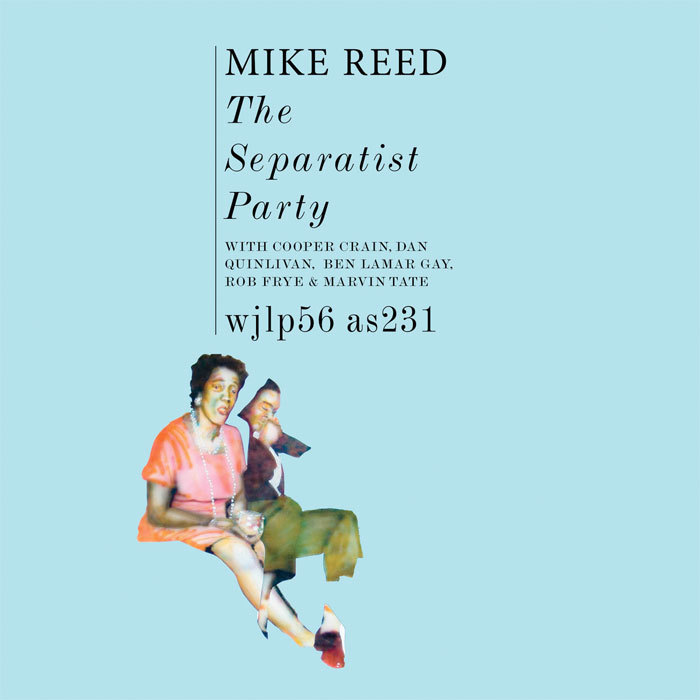
Mike Reed – The Separatist Party
A permutating document of isolation, loneliness, and the need for community filtered through the spiritual jazz legacies of the Organic Music Society, Nigerian funk, and the Arkestra, The Sepratist Party is an excellent additon to 2023. The record, led by percussionist Mike Reed, brings together a cross-section of talent from his Chicago surroundings. Steered by Reed’s rhythms, the record is embellished by performances from Bitchin’ Bajas — lacing in flute, sax, synths, and guitar — Ben LaMar Gay’s assorted brass, and poetry from Martin Tate. Tate, who’s been leading D-Settlement for years, adds a sense of urgency and invective to the mix. There’s hydra of rhythm and an encyclopedic approach to the record, but its all woven into a tapestry whose eclecticism forms patters the more its studied, cosmoses on cosmoses the more the eye wanders.
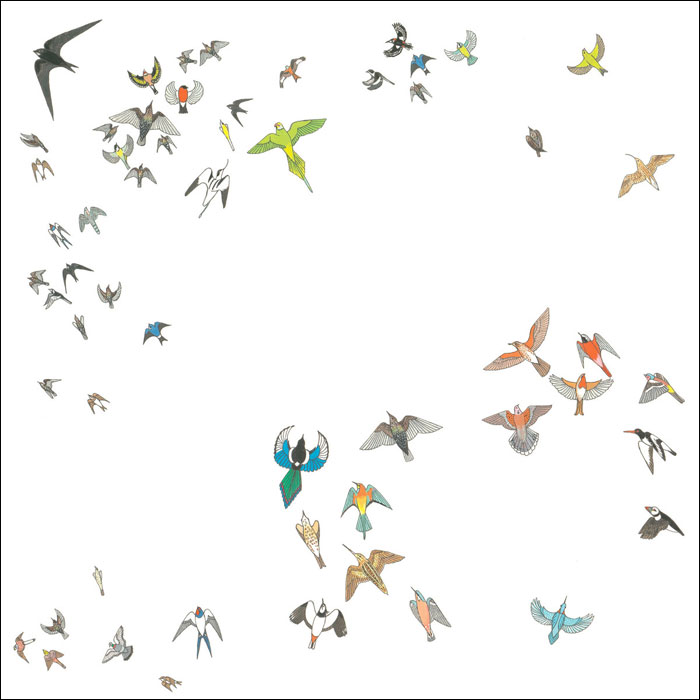
Modern Nature – No Fixed Point In Space
Surrounded by trusted players, Cooper has set out to free himself of pop’s conventions, and more specifically its expectations. The album succeeds in that regard, unmooring itself from much of the band’s past pulse and sway in favor of following what Cooper describes as patterns found in nature. Tracks like “Murmeration” dive and bend gracefully, tracing the arc of the flocks they emulate. “Sun” creeps over the horizon, building its glow through the final moments. The album breathes like a living thing — expanding and contracting, reacting to moments with sighs, flutters, and scatters of notes. The record shudders like dawn on the meadow, and leaves the listener with one of the band’s most inspired moments, the Tipetts-led closer “Ensō,” a microcosm of voice and winds that captures the spark of spontaneity that Cooper was looking for.
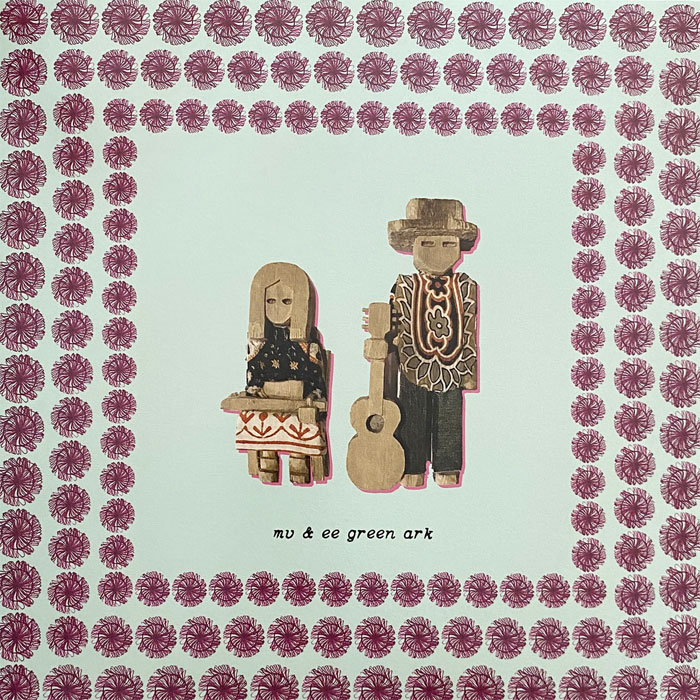
MV & EE – Green Ark
The pair doesn’t prove shy about length on Green Ark, making full use of the gatefold in all its glory. The nearly twenty minute opening salvo “Free Time” isn’t alone in its grip for a runtime record here. The band pushes past the marker once again on the propulsive brain scrub, “Livin’ It Up.” Time is of no essence on board the boat, though. The second platter embraces the ether even more than the first, pushing the listener further and further from solid ground. The chewiness that glued the listener to the grass on the first half dissipates, letting waveforms wobble off of smoke plumes and wiggle through fogged glass grottoes.

Mystic 100’s – On a Micro Diet
With the rise of Cosmic Americana in the last few years, Mystic 100s have tacked their sails into welcoming winds. The record is by turns tender and resigned, with a kind of crumpled weight to it, but it pushes through bouts of ecstasy and humor as well. At times Coxen’s howl feels like Tom Verlaine sitting in on Largeness With (W)holes-era Always August. It’s tied to the SST grit, but vibrating on a parallel grid where grunge got heady and stayed heady. As the album wears on the band moves even further out on the spectrum, finding solace in the darkness and din of Amon Düül or Agitation Free, especially on the 18-minute centerpiece “Have You Ever Chased A Lightbeam?.”

Nashville Ambient Ensemble – Light and Space
Outside of the context of their inspirations as a piece for the Los Angeles County Museum of Art, the songs on Light and Space still enter the nebulous world that Nashville Ambient Ensemble had built previously. Gossamer threads stretch across the headspeace, threading Hix’ synth, Luke Schneider’s Pedal Steel, and Jack Silverman’s guitar passages through the spaces created by Kim Ruger’s Piano and, this time around, Alicia Enstrom’s beautiful violin touches. The soft touch of new wave, the grandiosity of prog, the cosmic caress of Krautrock, and the kinetic feel of jazz all collapse into the heart of a star on Light and Space. What remains is an album that’s billed as background, but pulls the listener into its orbit with a devastating gravity.

Natural Information Society – Since Time Is Gravity
The band’s mastery of hypnotic, meditative works holds fast, letting their collaborators etch ecstatic tattoos upon the listener’s soft tissues as they thread the thrum that steers NIS steady. The core kernel of players build on minimalism, rising and falling with an eupnea that feels in tune with tides. Their sound blooms out of a drone that feels coded in the deepest fibers of player and listener alike. It’s a cosmic anchor that grounds the us to the Terran temperament even as Brown and Sugimoto’s saxes push towards the precipice, tipping further and further into the electricity of the surrounding air.
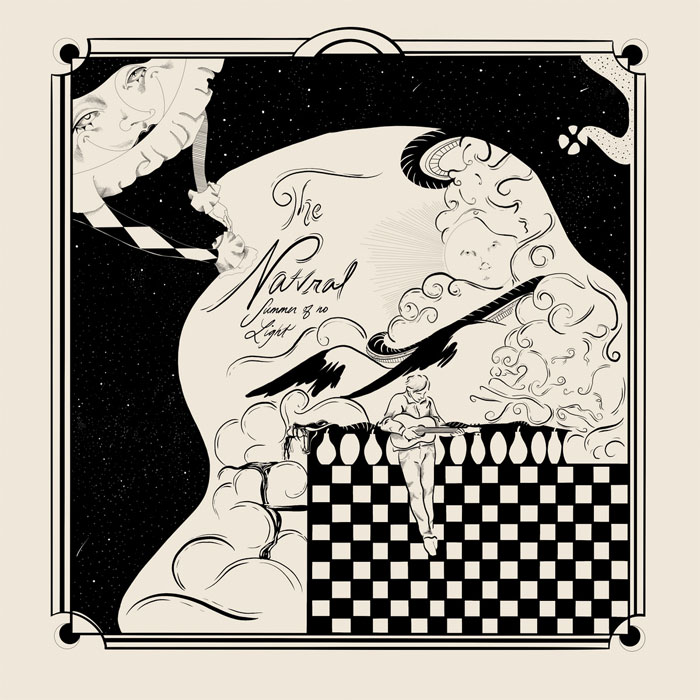
The Natvral – Summer of No Light
The title waxes pessimistic, but the album itself feels nothing short of celebratory. While the album could easily have served as a vehicle for escape or anger, at heart it’s more of an embrace of hearth and home. Aesthetically, aurally, it’s an album that feels like it should solely celebrate small town bar crowds, heartbreak, and hubris. Instead, between the outsized strums and organ swells there lie examinations of grief, the small kindnesses of couples, barely masking anxiety with composure, and the comforts of kin. There are also a few skids through heartbreak and humor as well, but like Petty exploring divorce through a solidified power pop classic, The Natvral turns turbulence into timelessness.

North Americans – Long Cool World
The new record finds the pair working in wonderful symbiosis, crafting works that feel like they were siphoned from the atmospheres of humid evenings and cold spring mornings. There’s a comfort to the songs’ stillness, a sense of surroundings either just waking or just settling away from perceptible view. The pair let acoustic ramble and sunlit steel lap over one another, shimmering, aching, vibrating deep into the marrow of the listener. The last couple of records from North Americans have all been meditatively gorgeous essentials, but they seem to be setting the stage for the inviting ache of Long Cool World.
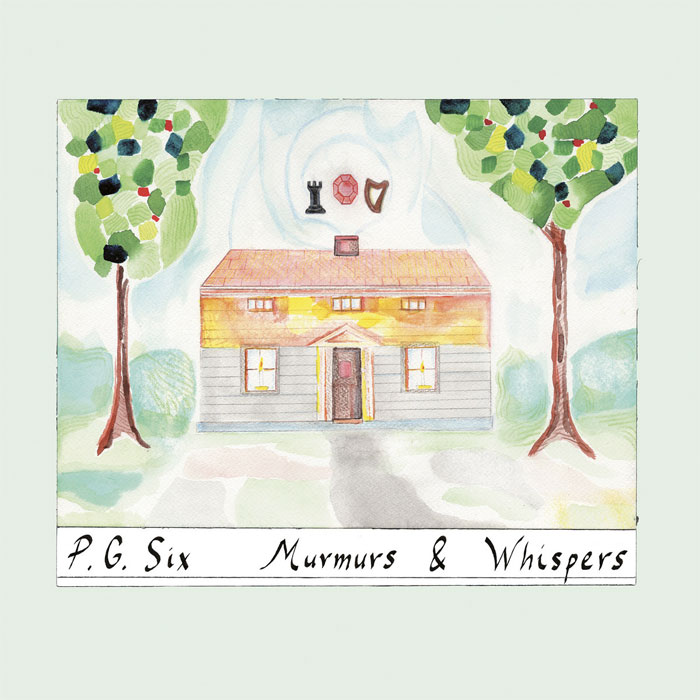
P.G. Six – Murmurs & Whispers
This past year saw a reissue of Pat’s 2001 album Parlor Tricks and Porch Secrets, an album that revels in Anglican folk, an apt companion piece to the new record. As with this early gem, M&W finds the harp in prominent position, with several songs feeling ripped from the traditional canon. That album found Gubler largely solo, though this time around a few good friends find their way into the mix — Wednesday Knudson provides sax, Clark Griffin percussion, and both Weeping Bong members lend vocals to the record. This time around local luminary Mike “The Mighty Flashlight” Fellows also finds his way behind the boards, as he’s done for labelmate Mike Donovan this year. The record captures the many sides of P.G. Six, draping its songs in delicate folk (“I Have Known Love,”) creosote scorch (“I Have A House,”) and rain-streaked intensity (“I Don’t Want To Be Free”).

The Pink Stones – You Know Who
Pinkston and crew excel at turning heartache into hangdog keepsakes, curios of crushed dreams lacquered in the band’s slow-sauntered vision of cosmic country. The last album split its run between the soft-hearted swooning that dipped their works in a sunset glow and a good dose of barroom belters. The new record finds itself running the same balance, vamping into the room on a country-funk foundation and laying down a torn and frayed tale of love gone sour with a bit of acid on its tongue. The band continues to keep the current crop of country interesting.
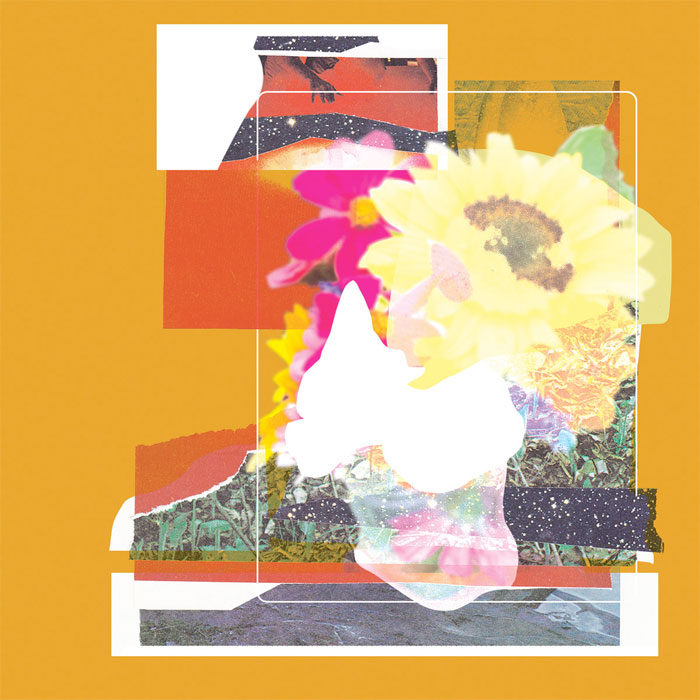
Powers/Pulice/Rolin – Prism
Three RSTB favorites all in one place! Pulice’s work takes on a bit of an edge here, less soft-focus than they’ve been on collaborations in the past. The edges of “Hidden Nook” in particular snag at the soul quite a bit. But when all strings are shimmering and Pulice’s notes begin to fall like snow, the album feels comforting, a sanguine sigh, a peek behind the cosmic curtain. “Magic Meadow Mirror” is one of the shorter moments on the record, but it captures the alchemy that the trio achieve so well before the set ends in the towering, transformational “ Wind Whirl,” washing over in wave upon wave of blissful oblivion.
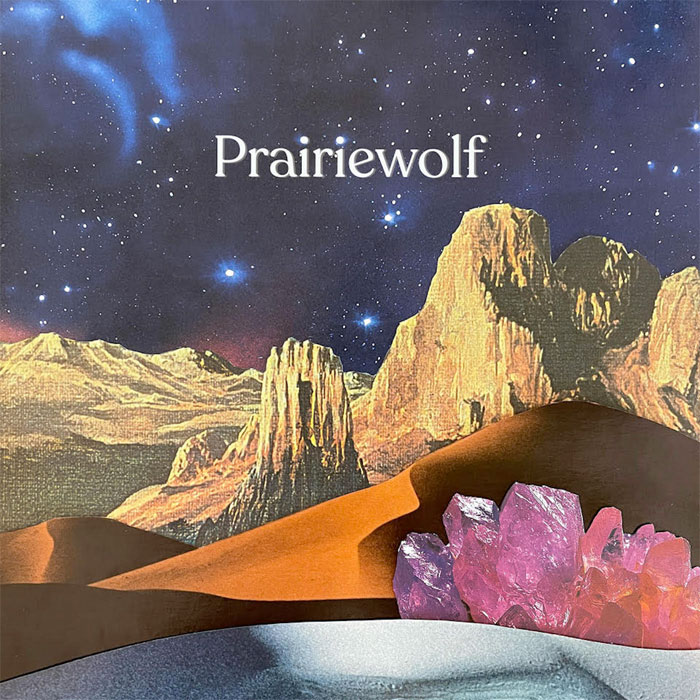
Prairiewolf – Prairiewolf
The band’s debut LP captures the pocket zeitgeist of Cosmic Americana, Kosmiche, and ambient country that’s been stirring over the past few years. While that scene’s voracious scope is a proper touchstone and launchpad into their world, Prairiewolf’s eponymous LP can’t be as easily contained or codified as simply an ambient country record. The trio employ the open psychedelics of Don Cherry, the mechanical shudder of A.R. & Machines, the Western expanse of Earth’s Hex, and the spiritual yearning of Alice Coltrane.
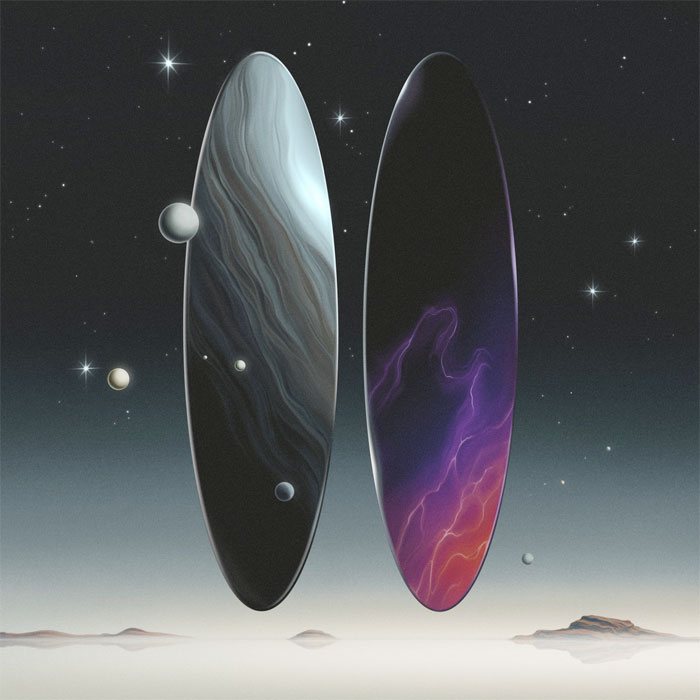
Psychic Temple featuring Lisa Bella Donna – A Universe Regards Itself
Paring way back from the four sides of Houses of the Holy, the album explores two longform compositions more in the vein of Chris’ recent work on the Planet Caravan outing. Along with the assembled players and Bella Donna, the record features a choir that adds an ethereal quality to the proceedings. “Approaching Sunset,” is marked by the soft scrape of Isaiah Morfin’s sax and Steph Richards’ trumpet lines, opening up into a cosmic midsection that finds Bella Donna’s synths opening the hatch on the planetarium of sound. “The Ninth Wave” embraces the choral arrangements more than the first, cracking into view with the dawn light tenderness of acoustic strings and vocal float. It too is marked by the tangle of Morfin and Richard’s horns, but on the whole finds itself in a much more pastoral vein, unfurling with an amber glow that radiates out of the speakers.
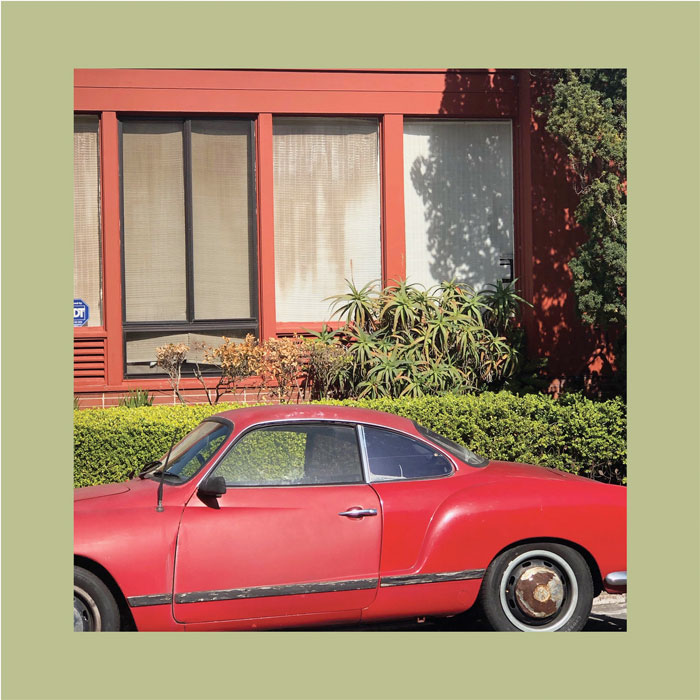
The Reds, Pinks and Purples – The Town That Cursed Your Name
Glenn leaves behind some of the gauzy bliss of Summer At Land’s End for a record that’s intrinsically tied to his home in San Francisco and the encroaching struggle to remain in a city increasingly hostile to artists. The sounds beneath the struggle for the survival of soul are still buoyed by Glenn’s love of ‘80s and ‘90s indie pop. The Homestead and Sarah stables take their fair share of the weight, while The Go-Betweens make a larger stake this time around. The smudges and rosy blurs of the last album are eaten away by more prominent fuzz, a bubbling irritation beneath Donaldson’s dreamy exterior. The bubblewrap snap of drums quickens its pace, while Glenn ponders failed labels, wanting more than minimum wage, and scuttling it all in frustration.

Rose City Band – Garden Party
At its core, Garden Party embraces the choogle-charged, sun-baked flow of Cosmic Americana. It’s a record practically positioned to elicit a smoke-ring smile, but amid the ramble of mid-set burners like “Porch boogie” and “Slow Burn” there’s also a melancholy streak this time around. Rip’s heart sighs and the tones turn to lavender and purple as “Saturday’s Gone” drapes its cold spring comedown around the speakers. There’s never been a miss in the RCB catalog, but its been great to see it evolve from private press home sessions into a modern-day New Riders.

RVG – Brain Worms
Hung on the same iridescent ache that informed indispensable works from Echo and the Bunnymen, Kate Bush, Siouxsie, The Psychedelic Furs, and Talk Talk, the record rifles through discomfort, an inner itch that refuses to resolve. Scenes of sour endings, body horror hallucinations, Skype funerals, Astrology, and the inexorable toxicity that infects our every thoughts, permeate the record. Vager remains one of rock’s most enigmatic voices — her powerful delivery nailing every knotted emotion into the listener with a razor-tipped precision.
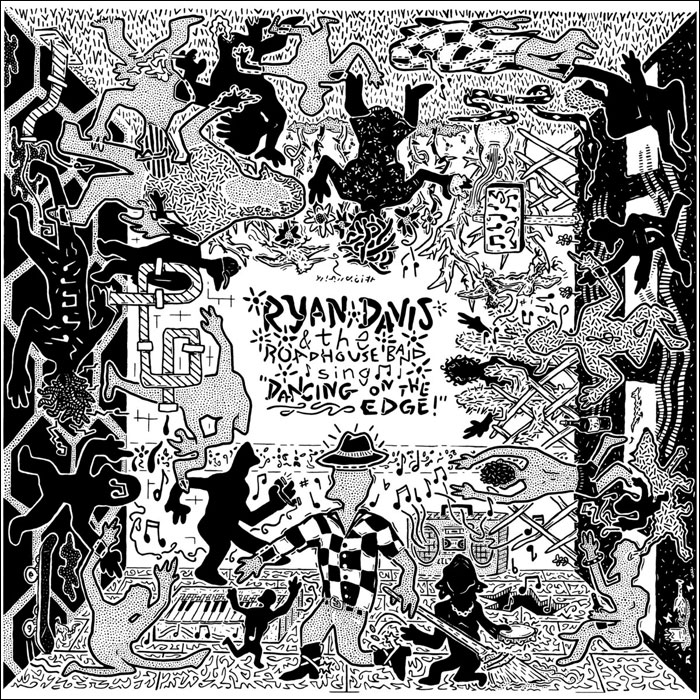
Ryan Davis and the Roadhouse Band – Dancing On The Edge
With a troubadour’s heart, Davis drums up drinking songs about playing ‘got yer nose with the face of death,’ jukeboxes that only play “The Sultans of Swing,” and ‘places where the Asphault is still smeared with the deer of the ‘90s.’ With the band greased to perfection behind him, he makes a collection of 6 to 9 minute monologues breeze by like a cache of favorite jukebox singles. The Roadhouse winds up a pretty familiar feeding ground, driven by his bandmates in the Ankh, but with pop-ins from Joan Shelley, Catherine Irwin (Freakwater), Will Lawrence (Gun Outfit), Elisabeth Fuchsia (Footings, Bonnie ‘Prince’ Billy) and more. The comfort and camaraderie between Davis and the band are what make the record among his most comforting, swaddling his screeds in pedal steel, Fuchsia’s impeccable strings, honeyed strums and a sigh of background vocals.
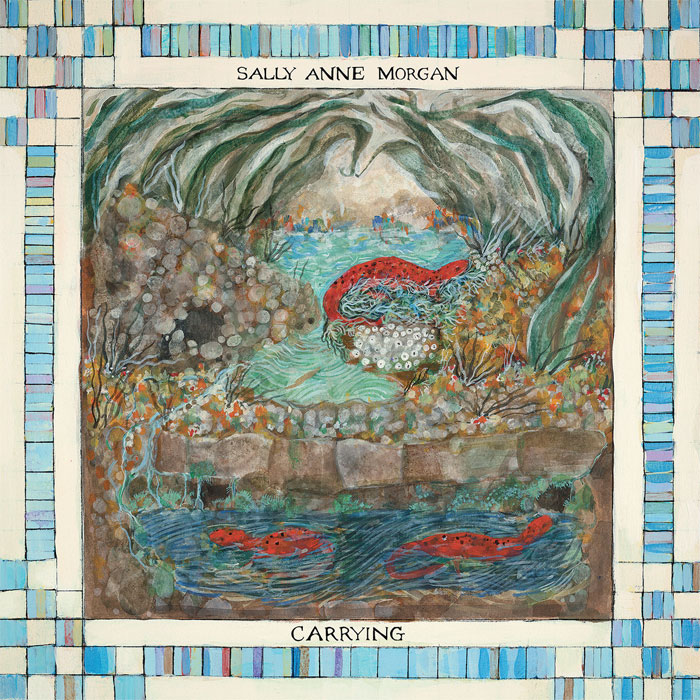
Sally Anne Morgan – Carrying
This time around Morgan leans a bit less into the bluegrass of her past. The dance of fiddle fades more often for something a bit more Americana, though it still graces the dawn light glow of “Summerwater” and the achingly beautiful closer “Song for Arthur.” The instrument takes on a more somber tone that leaves the barn for the bedside when it does appear. The album opener finds her set up solo with banjo, but following that sparse introduction the songs thicken, aided by her collaborators, with Lou Turner’s flute curling ‘round “The Center” like wood smoke, Zinn and Johnson’s guitars adding a touch of country romp, and Joseph O’Connell sparring vocally on “Streets of Derry.” The album’s a subtle, but solid evolution in sound for Morgan, still anchored to pastoral charms, but not shying away from a bit of spiritual weight this time around.
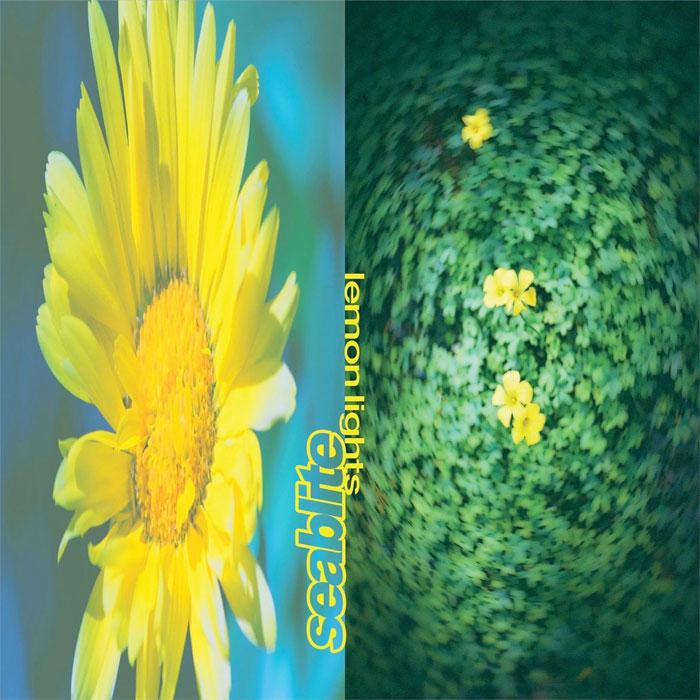
Seablite – Lemon Lights
The band hurdles over the highs of their debut, still plumbing the well of shoegaze and dreampop, but with a tighter focus on the underlying pop sheen this time around. The band escapes the pitfalls of the often rote genres, lacquering a vaseline smear of obfuscation onto pristine pop tracks rather than using the cotton ball cocoon as the hook. Too often bands get a bit bogged down in the sunburn singe of fuzz and froth that it becomes a crutch, but strip away the sudsy production and Seblite would still have an album full of indie pop hooks and dream-doused gems.

Setting – Shone A Rainbow Light On
The four pieces on Shone A Rainbow Light On rise over the ridge, floating in the fog, but anchored by Westerlund’s percolating, polyrhythmic percussion. There’s a tension in many of the songs between the cosmic peace of Westernlund’s synths and harmonium — droning with a grey-light float — and the skitter of the beat beneath. On more than one occasion the record feels like sinking into the surface of the Earth, with the mind caught between racing panic and calm acceptance.

Shana Cleveland – Manzanita
Manzanita is a distinctly West Coast record, but not in the sense of sunshine and sea breeze. Instead, the album is framed by the night, the canyon air, the weird magic that seems to hover over portions of the West. As with the first record, she’s reframed the inertia of surf into something nocturnal and adrift — a mirror image scene of serenity, a mapping of the undertow.
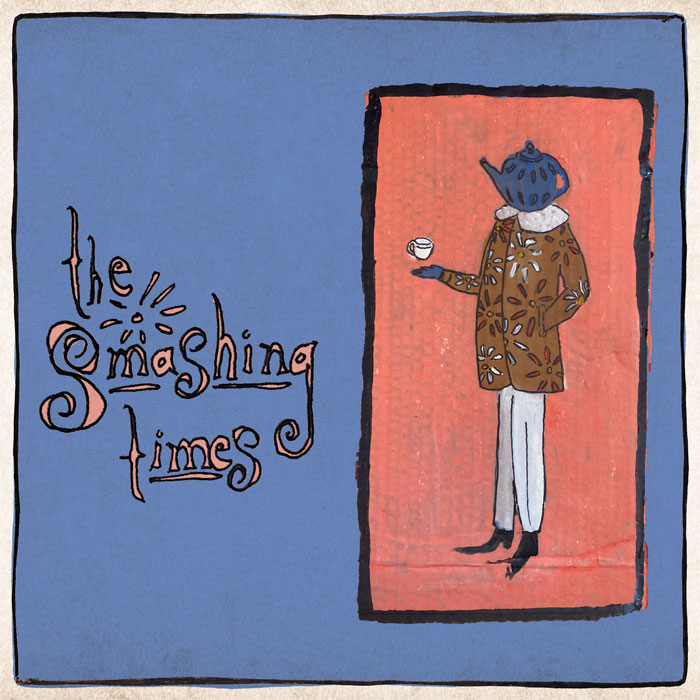
The Smashing Times – This Sporting Life
The Baltimore band owes an admitted debt to Television Personalities, culling their name from the band’s 1980s Rough Trade single, but on their latest outing, they move even further beyond the tips to their namesake. The band had a knack for eschewing the stylistic rut on Bloom, and they continue that tradition on This Sporting Life. The Treacy trajectory still snags their arc from time to time, but the band injects quite a bit of smudged psychedelics this tme, rendered in lollipop hues, weaving Paisley Pop among a love for the ‘60s 12-string strummers that set it all in motion. The band often prioritizes propulsion over overt hooks, sending the listener spinning through a sensory sojourn of jangles that seem to close in from all sides. That quality lends itself nicely to the band’s touch of prismatic warble, letting their love for Three O’Clock get a bit roughed up in the Tascam.

Spencer Cullum – Spencer Cullum’s Coin Collection 2
The previous album feels like the building blocks to what’s happening on Coin Collection 2. It remains a record rooted in the fragrant, perfumed vision of English folk, but Cullum’s voracious intake of influences stretches the record far beyond homage or affectation. The record succeeds in becoming more than just an English folk record with a solid Nashville undercarriage, turning into a folk fusion classic for the current age.

Stella Kola – Stella Kola
The album is steeped in the captivating folk of Linda Perhacs, Judee Sill, Karen Dalton, and Bridget St John. The latter is perhaps the most apt, as the record evokes Song for the Gentle Man, bolstering Ketch’s songs with an array of instrumentation from friends, including Wednesday Knudsen’s Flute, P.G. Six on harps, various keys, and guitar, Gary War on synth, Jen Gellineau on viola and violin, and Willie Lane and L. Gray on guitar among others. Ketch and Thomas lace the songs with more than just the heavy fog of English ‘60s. The best records from that era also carried with them an inherent sadness and Stella Kola’s songs wash over the listener with a beautiful woe.

Sunwatchers – Music Is Victory Over Time
continues to inject psychedelic jazz with the spirit and ideals of anarcho-punk, then lays the squall atop a German Progressive pulse. The band’s been lofting the banner for social justice for years, and despite the instrumental approach, the writhing unrest that resides at the heart of Sunwatchers’ albums remains more vital than any lyrical screed. No time like the present for an anthem or seven to counter the prevailing winds of greed and hate. This break in the band’s recent hiatus feels like a return to form, but almost certainly also a progression, turning their stage-side sweat into an album that burns deep into the senses.

Sweat – Who Do They Think They Are?
Drawing from the heights of ‘70s excess, the band mixes a towering arena rock sound with equal parts prog and glam. At times reaching the stadium-swelling sounds of Heart, Pedrazzi’s voice is the gale force that guides the album, drawing on the power of the Wilsons, Pat Benatar, Geddy Lee, and Joan Jett before her. Behind her tempest, the band also scan the dial for past influences, proving just as potent on the cathartic pounce of the glam-punk powered “Jane” as they do on the moonstone swirl of “Dark Horses (White Lies).” The band finds solace in the organ-led impulses of Deep Purple and The Moody Blues. They dig into the working-class clout of Thin Lizzy, but also find themselves reaching for the premium chrome sheen of studio smiths like Boston and Rush.
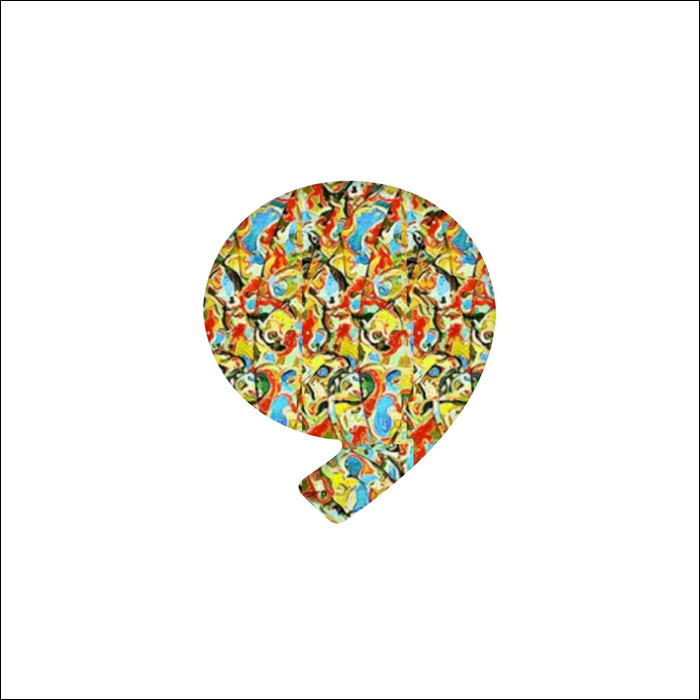
Taper’s Choice – History of Taper’s Choice Vol. 1
Featuring a cross-section of high profile names from familiar bands — Alex Bleeker (Real Estate), Chris Thompson (Vampire Weekend), Dave Harrington (DARKSIDE), and Zach Tenorio-Miller (Arc Iris) — the band’s credentials would have read like an indie supergroup, but they eschew their past to follow a different path. With a heavy debt to Tenorio-Miller’s keys, the band embraces the grandeur of ‘70s prog as it began to slip into ‘90s jam. With the supple grace of Traffic, the band melds notions of jazz into tightly wound grooves. It’s clear the band spent as much time between the Roger Dean-draped dreams of Yes as they did delving into the Santa Monica sets and The Low Spark of High Heeled Boys, then on “You Can’t Make A Rainbow” the band goes full Tarkus, letting the smoke plumes mix with the sci-fi clouds.
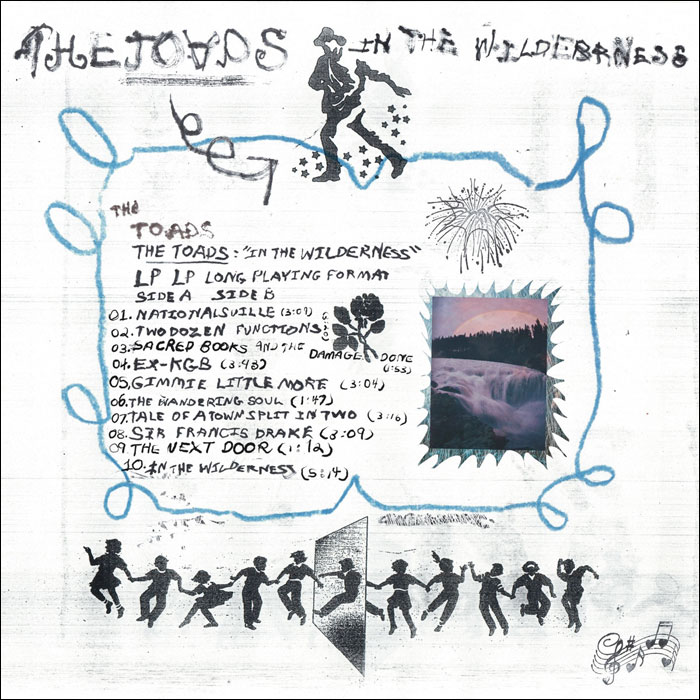
The Toads – In The Wilderness
The band culls members of The Shifters, The Living Eyes and Parsnip. The members originally convened to bang out a few songs for a 7”, but the release grew to a full album as the songs piled up each time they got together. The Toads diverge from some of the expectations of their individual histories. While there’s a bit of the snarl that comes stock with Anti-Fade forerunners, the band’s sound is more expansive than many of their peers. Nodding rhythms and chewed wire guitars resolve into strums, horn stabs, flutes, and squiggled keys. There’s’ a sense of unease among the band’s lyrics — struggling with banality, inequality, growing anxiety, and existential drift. A more sour-hearted record than many of their contemporaries, the record delights in the dour, pouring out its ounce of punk sweat, but spilling over into ambitious arrangements that make this a fun album to pick apart over repeated listens.

The Tubs – Dead Meat
The new album embraces the band’s love of UK folk as much as that of Homestead-rooted ‘80s indie. Due in no small part to the similarities between their voices, the band often feels like they’ve jostled a live-wire of post-punk into the works of Richard Thompson, reaching back towards Fairport, but more often touching on this solo repertoire. Like fellow janglers Jeanines, the infusion of folk with the fumes of ‘80s indie pop feels like a proper look back at those who’ve beaten that path before them. The works on Dead Meat feel less like a band emulating ‘80s than a masterclass in method acting, turning those original influences into vibrant splashes of pop.
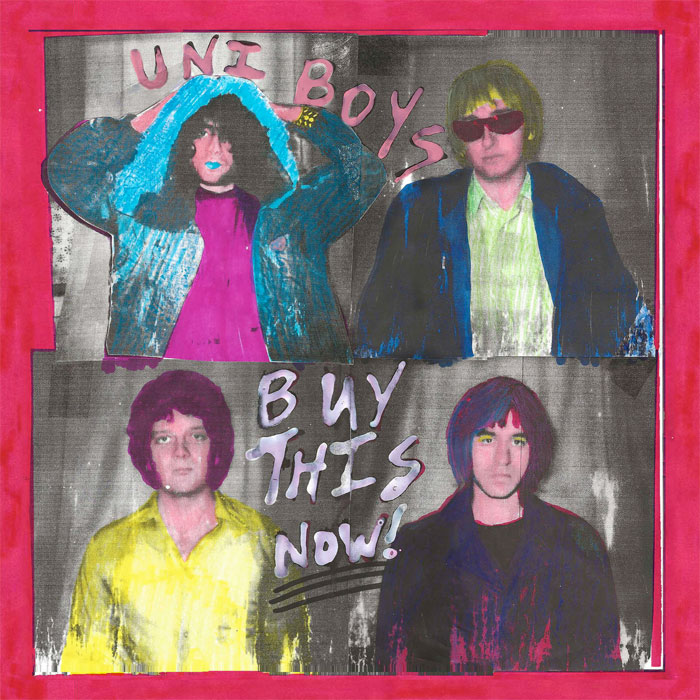
Uni Boys – Buy This Now!
For their latest, they bring fellow ‘70s pop scholars Brian and Michael D’Addario of The Lemon Twigs along for the ride. The pair give the new album a soft focus glow, a smoothness that was missing from their early works. Buy This Now!, as a result, is an album that feels like they’ve slipped out of time to snag an unsung classic direct from the bins of the early ‘80s. Still slicing an ounce or two off of the legacies of The Quick, Milk n’ Cookies, and The Speedies, the band’s prowess comes in emulating their predecessors’ balance of bravado and vulnerability, buffeting the punk bite with a pillow of pop that softens the blow. The new record, with the D’Addarios behind the boards, digs further through the scratched rearview of the past, laying into not only the ’79/‘80 school of pine n’ pout, but back through the building blocks of some of those classics as well.
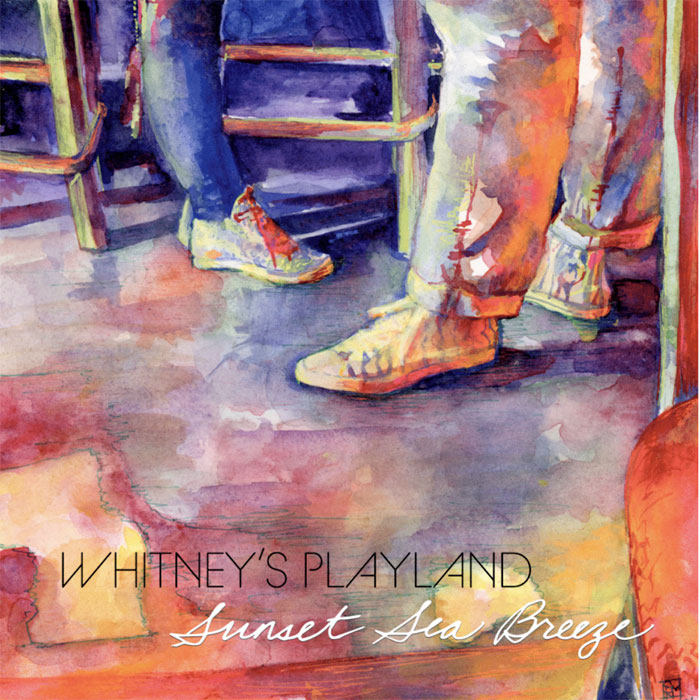
Whitney’s Playland – Sunset Sea Breeze
Whitney’s Playland come as close as any these days to making jangle and strum feel like a timeless art. While they certainly bring a few bands to mind like Yo La Tengo, Heavenly, or The Sundays, what really ties the band to those touchstones is the feelings they evoke. Gauzy, but not gluey, carefree, but not frivolous, the band comes on like a perfect breeze on a summer’s day. Each listen through the album reveals another song that could be a hit if radio dipped into deeper pools.
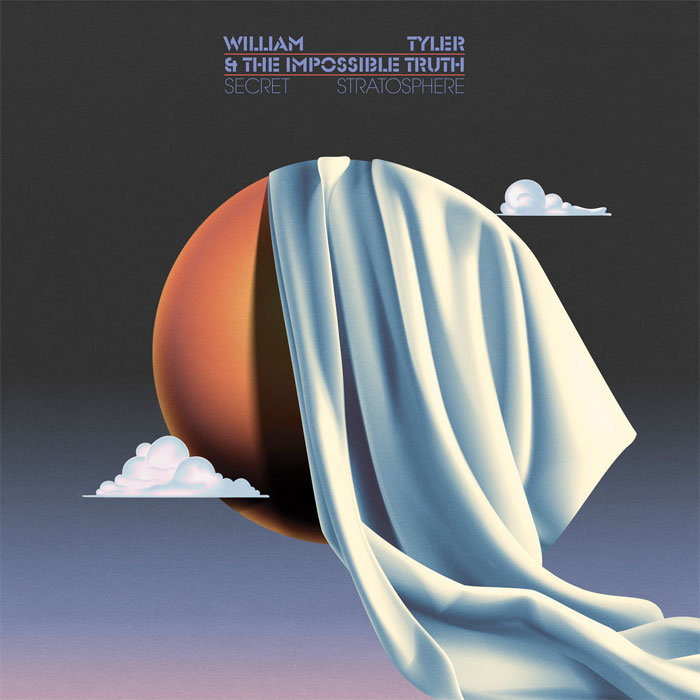
William Tyler & The Impossible Truth – Secret Stratosphere
I’m always in line for whatever Tyler’s serving, but I while I might have expected a thickened turn towards Cosmic Americana, the embrace of Space Rock is a nice surprise. He’s splitting sonics between Hawkwind and Rose City Band on a new record with The Impossible Truth. The band is built on the bones of Nashville ringers, with steel guitar great Luke Schneider (Margo Price, Teddy & The Rough Riders), Bassist Jack Lawrence (The Raconteurs, The Greenhornes) and drummer Brian Kotzur (Country Westerns) filling out the lineup. The band laid the record down live at Yellowhammer Brewing in Alabama, but the dynamic between the players feels as honed and harnessed as if it was meticulously worked out in the studio.

Wurld Series – The Giant’s Lawn
The band never quite played it straight, but they were predominantly picking at the scabs of the Christchurch sound as they burrowed into What’s Growing. For The Giant’s Lawn, the band still lets a bit of the old crunch onto the court, but they’re digging far deeper into their well of influences. Clouds of Anglican folk and Canturbury prog gather, especially on the winding curls of guitar smoke that emanate from Towart’s songs. The band’s trick is tying the fuzz and fancy together into an album that feels like its constantly working through cycles of growth, bloom, decay, and decline. The record refuses to sit still, but rather than feel uneven, they turn their voracious scope into a concept piece that never gets too heady or strays too slight. The band lets the weeds burrow deep into their sound, then slash through the tangle with a sharp riff and a gleam in their eye. Best power prog album of the year.







